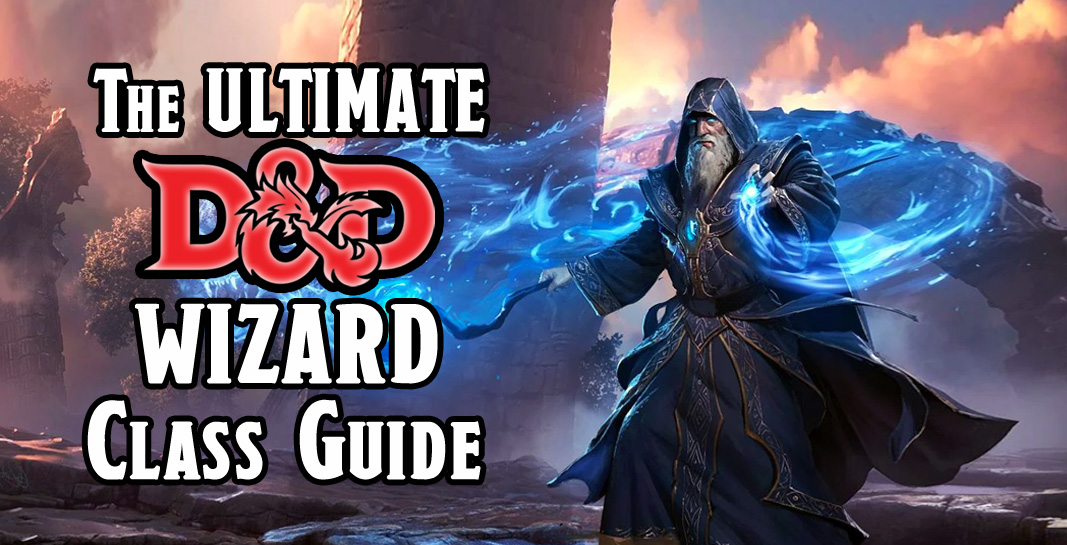
Wizard is arguably the best class available in Dungeons and Dragons, hands down. It requires the highest degree of mastery of the game to play successfully, but in a straight fight between elite players of any of the twelve basic class of equal d20 system acumen, Wizard should win eleven out of twelve times, and the twelfth being against another wizard. It is the most versatile class; wizards have access to the most and best magic in the game, and are able to approximate any other class in a pinch. Stuck in a dungeon? Teleportation. unsure what to do next? Divination. Lost a melee tank in the middle of an important fight? Polymorph. For those of you who have played D&D for a long time you know exactly what I’m talking about. For those of you who haven’t, buckle up, this is the big leagues.
Follow this guide to discover how to best optimize the skills, weapons, features, and abilities for a D&D 5e Wizard class character build. While the options presented here may be the optimal build for a wizard (in my opinion), the beauty of D&D character creation is that the only limit is your imagination so feel free to build your character whichever way you want to.
The guide that follows uses a color-coding system to rank the abilities granted.
Blue = An essential, class-defining ability you would be remiss to overlook.
Green = A strong choice for your class.
Orange = Average option, useful in specific circumstances
Red = Below average, extremely situational, or otherwise just bad.
All features and abilities are from the core rulebook set (Player’s Handbook, Monster Manual, and Dungeon Master’s Guide) unless otherwise attributed.
Party Role
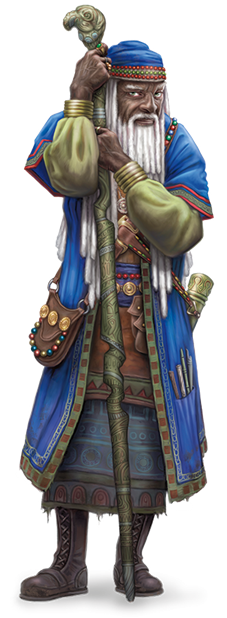
Wizards can fill any party role, given the correct build. In a typical party, the wizard is a source of ranged spell damage, a utility caster, and a great team player.
Strengths:
- Wizards have access to the broadest and most comprehensive spell list, edging out Clerics for ultimate utility.
- Wizards main stat intelligence, meaning that for any check requiring intelligence, for which there are many, they are the know-it-all who can and should figure it all out.
Weaknesses:
- Wizards don’t get any good weapon proficiencies. You’re going to be relying on your spells pretty heavily, so this is an easy weakness to mitigate with the proper cantrip selection.
- Wizards really suffer on the defensive side of things. Mage armor gets you where you need to be, but it takes a lot more to get you where you want to be.
- Hit points. Wizards are on d6 hit points. Coupled with their inability to wear armor, they are very squishy. Depending on your build, you’re going to rely heavily on magic and stout companions to keep you alive.
- Yes, it’s a double-edged sword. Magic is your greatest strength and most critical weakness. You need to prepare the correct spells in order to succeed. If you’re caught without the proper spell, or gods forbid, in an aura of antimagic, you’re going to be in big trouble.
Check out this video by Don’t Stop Thinking which summarizes the D&D Wizard Class:
Ability Scores
Strength: Work smarter, not harder.
Dexterity: Evasive maneuvers are critical for you to stay alive. You need good Dex saves. If you’re restrained, you can’t case spells that require somatic components.
Constitution: Don’t skimp on your hit points! Your Constitution can quickly outpace your hit dice as far as providing you with actual hit points. You’re going to need Constitution for the saves as well, as most Con save spells are debilitating to a low-hit point character.
Intelligence: This is all that matters. Max out your intelligence as soon as you can, and you will reign supreme on the battlefield and in any sort of puzzle encounter.
Wisdom: You only need Wisdom if you’re going wide on skills. You’re already proficient in the save, and that’s usually enough.
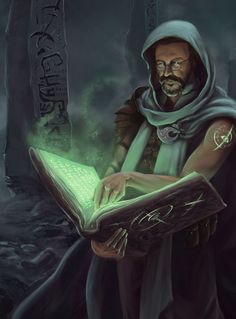
Charisma: You don’t need to be well liked if you’re always right. Let the Bard take the lead in social situations.
Race
Greyhawk and Forgotten Realms Races
AarakocraEEPC: Aside from providing you with flight, which is arguably the most overpowered ability in the game, this race doesn’t provide much to benefit you and your spellcasting.
AasimarVGtM: The Base Aasimar race doesn’t offer much, and none of the subraces have the ability score increases you’re looking for or useful secondary abilities.
Fallen: Not good for wizard.
Protector: Not good for wizard.
Scourge: Not good for wizard.
BugbearVGtM: Not good for wizard.
DhampirVRGtR: There’s nothing appealing for Wizard here.
Dragonborn: Not good for wizard.
Dwarf: The Constitution increase is decent, as it will give you some bulk, but otherwise not the best race.
Hill Dwarf: The best option among dwarves, as it grants you even more hit points and a bump to your Wisdom.
Mountain Dwarf: Not good for wizard.
DuergarSCAG: Not good for wizard.
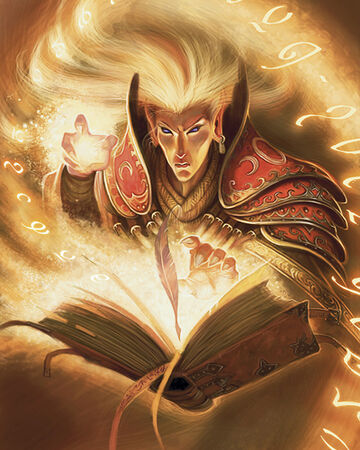
Elf: Thematically and mechanically, Elves are very good at many things. Given their bevy of subraces, at least one fits each class. Wizard has a single good choice.
Drow: Not good for wizard.
EladrinMToF: The version in Mordenkainen’s Tome of Foes has a poor ability spread for you, but the DMG variant has the perfect ability score increase set.
High Elf: The second best option out of the elf subraces, as it has an Intelligence bonus as the small ability score increase.
Sea ElfMToF: Not good for wizard.
Shadar-KaiMToF: Not good for wizard.
Wood Elf: Not good for wizard.
FairyTWBtW: Flight and free spells make this an incredibly powerful race for a spellcasting class.
FirbolgVGtM: Not good for wizard.
GenasiEEPC: Not the best choice of race, Genasi are another Charisma-focused race that make better natural casters than studied ones.
Air: Not good for wizard.
Earth: Not good for wizard.
Fire: The only worthwhile choice among the lot is Fire. It gets you a +1 intelligence modifier, a cantrip, and resistance to the most common damage type in the game.
Water: Not good for wizard.
GithMToF: A great family of races for any class, Githyanki is one of the best available for wizard in a non-specific setting.
Githyanki: Proficiency with medium armor and swords makes you a decent defensive duelist in a pinch. The free spells you get through psionics are already on your spell list, but having them available separately will save you some prepared spells.
Githzerai: The psionics are the only thing this race really adds to your character.
Gnome: Gnomes make great wizards no matter which subrace you pick. They are one of the few races that have a bonus to Intelligence, and have a bunch of interesting auxiliary traits as well.
Deep (Svirfneblin)EEPC/SCAG: For a subterranean campaign, this is your best bet.
Forest: The Dexterity bonus is a big help in saves and AC, and a free cantrip can’t hurt.
Rock: The worst of the three, but still a strong choice. The Constitution bump makes you tougher to take out.
GoblinVGtM: Not good for wizard.
GoliathVGtM/EEPC: Not good for wizard.
Half-Elf: Always a decent choice, the increased customization this race offers allows you to make a tailor-fit, though not perfectly optimized character.
Standard: Two skills lets you grab all the Intelligence-based skills between this, your class, and your background, to maximize your intelligence skill usage and utility.
AquaticSACG: Only in an aquatic campaign.
DrowSCAG: You’ll have enough spells available to you without this race’s contribution.
Moon/SunSCAG: Again, you’ve got enough spells, but at least this lets you choose which you get.
WoodSCAG: A strange combination, not very useful.
Half-Orc: Very poor choice.
Halfling: Lucky is good if your build is going to have you making a lot of spell attack rolls. If you’re relying on save DC, it’s useless.
Lightfoot: You can use magic for stealth.
GhostwiseSCAG: Nothing good for Wizards.
Stout: The constitution bonus makes you a little more durable, but it’s not enough to matter.
HarengonTWBtW: Rabbit Hop gives you an escape button from melee.
HexbloodVRGtR: Thematic, and powerful. You gain several useful magic pseudo-spells including scrying,
HobgoblinVGtM: The constitution bonus and Saving Face make this a strong contender for a melee/warmage build.
Human: Always a great choice.
Standard: Don’t pick this one.
Variant: The first level feat is HUGE for a Wizard. Starting out with an extra trick makes you a wildcard.
KenkuVGtM: Not good for Wizard.
KoboldVGtM: Not good for Wizard.
LizardfolkVGtM: Not good for Wizard.
OrcVGtM: Not good for Wizard.
RebornVRGtR: This is a mediocre race at best.
TabaxiVGtM: Not good for Wizard.
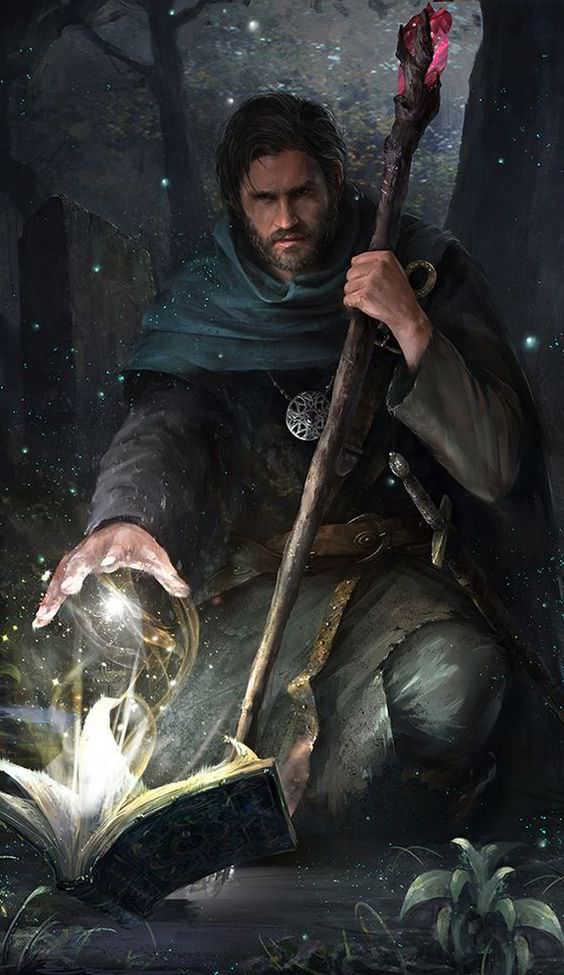
Tiefling: Most of the subspecies are not good for Wizard, except if you can fly.
Standard: Not good for Wizard.
Devil’s TongueSCAG: Not good for Wizard.
FeralSCAG: Not good for Wizard.
HellfireSCAG: Not good for Wizard.
WingedSCAG: Flight on an otherwise very squishy character is the best thing available to keep you alive.
AsmodeusMToF: Not good for Wizard.
BaalzebulMToF: Not good for Wizard.
DispaterMToF: Not good for Wizard.
FiernaMToF: Not good for Wizard.
GlasyaMToF: Not good for Wizard.
LevistusMToF: Not good for Wizard.
MammonMToF: Bonus to intelligence, but nothing else to write home about.
MephistophlesMToF: Bonus to intelligence, but again, nothing else to write home about.
ZarielMToF: Not good for Wizard.
TortleXGE/TP: The 17 AC is a huge boon to a caster, but there isn’t much else that helps your spellcasting here.
TritonVGtM: Not good for Wizard.
Yuan-Ti PurebloodVGtM: Magic resistance gives you an edge in a caster-on-caster battle, which is worth it despite the lack of any other support from this race.
Eberron Races
ChangelingERLW: Not good for Wizard.
KalashtarERLW: Not good for Wizard.
OrcERLW: Not good for Wizard.
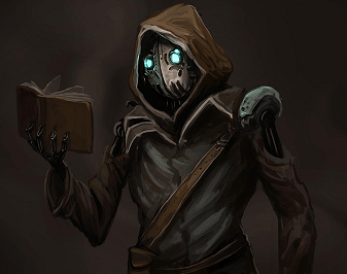
ShifterERLW: Not good for Wizard.
Beasthide: Not good for Wizard.
Longtooth: Not good for Wizard.
Swiftstride: Not good for Wizard.
Wildhunt: Not good for Wizard.
WarforgedERLW: You can make a decent character of any class out of a Warforged, and wizard is no exception. The customization of ability scores and natural armor afford you a lot of toughness overall.
Ravnica Races
CentaurGGTR: Not good for Wizard.
LoxodonGGTR: Not good for Wizard.
MinotaurGGTR: Not good for Wizard.
Simic HybridGGTR: You get a bunch of cool abilities, but you’re going to end up needing and using them to escape more than anything, since you’re still the squishiest type of caster.
VedalkenGGTR: The strongest race available for wizards, and thematic as well. A Vedalken wizard is armed with a ton of utility.
Strixhaven Races
OwlinSACoC: Flight on a caster is a good choice, considering your lack of heavy armor and hit points.
Theros Races
LeoninMOoT: Not good for Wizard.
SatyrMOoT: Not good for Wizard.
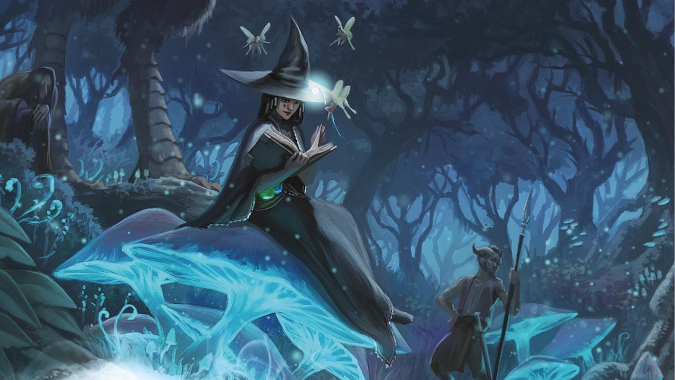
Class Features
Hit Dice: d6 is the lowest hit die available. It stinks that you wield near limitless arcane power and are bounded by a measly d6. Just be grateful it’s increased from the d4 available to wizards in previous editions.
Weapon Proficiencies: You don’t get any decent weapon options, but your spells more than make up for it.
Armor Proficiencies: None, but again, spells! Mage Armor has got you covered.
Tool Proficiencies: Again, none, and again, magic.
Saving Throws: You get proficiency in Intelligence and Wisdom saves. If anyone is going to resist enchantment and illusions spells, it’s going to be you.
Arcane Recovery: You can recover spell slots equal to half your level after a short rest once per day, allowing you some measure of longevity over the course of a long day.
Spell Mastery: Turning a select 1st– and 2nd-level spell into essentially a cantrip is great. Use this to have ever-ready utility spells you would normally reserve on casting.
Signature Spell: Two extra 3rd level spells per day is less thrilling than unlimited 1st and 2nd level casts of your spell mastery choices, but still a welcome addition to your arsenal, and an extension on your day of casting.
Arcane Traditions
Bladesinging
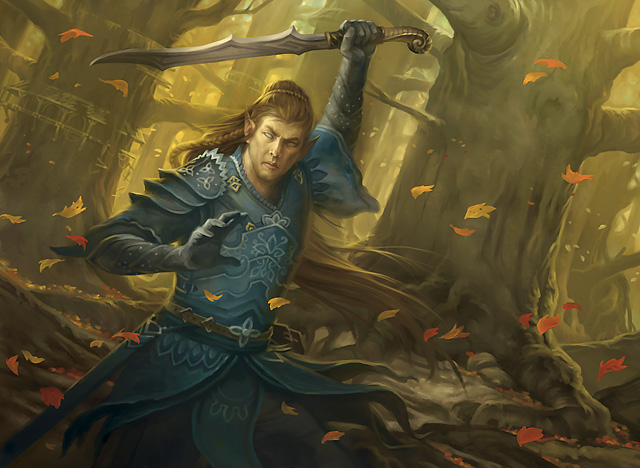
If you’re a wizard who can’t resist the urge to wade into melee, the Bladesinger is for you! You need a high Dexterity, Constitution, and Intelligence to make this work. Dexterity for your AC and finesse weapon proficiencies, Constitution to give you the hit points to survive in melee, and Intelligence for your skills. If you rolled well enough in character creation, this is a potent wizard option that provides a degree of versatility compared to other subclasses while also giving you a great specialization.
Training in War Song: Light armor alleviates the need for Mage Armor. For your weapon proficiency, taking a finesse weapon is a strong option, given that Dexterity contributes to both armor class and weapon attacks.
Bladesong: Bladesong is your most useful ability, boosting your melee combat abilities, protecting your duration spells, and making you a powerful combatant.
Extra Attack: One of your attacks can be a cantrip, which lets you use Booming Blade or Green Flame Blade to buff a single big attack. This also gives you more utility when using a ranged weapon, shooting twice instead of once, which is an upgrade over your cantrips which can normally only target a single opponent.
Song of Defense: You’re stuck on d6 hit points, so this gives you a little more durability at the cost of some spell slots. Weigh using this vs. shield or similar each time you would use it.
Song of Victory: This boosts your melee damage a good deal, assuming you’ve maxed out your intelligence by now. However, it doesn’t do anything for your ranged attacks or spells.
Order of the ScribesTCoE
The Player’s Handbook presented a specialization for each school of magic. If you have a hard time choosing or want to get every school of magic in your spellbook, you can join the Order of the Scribes and seek ultimate knowledge in all areas. This subclass grants you the most flexibility of any Wizard option, while preserving the feeling of Wizard without turning you into a Sorcerer.
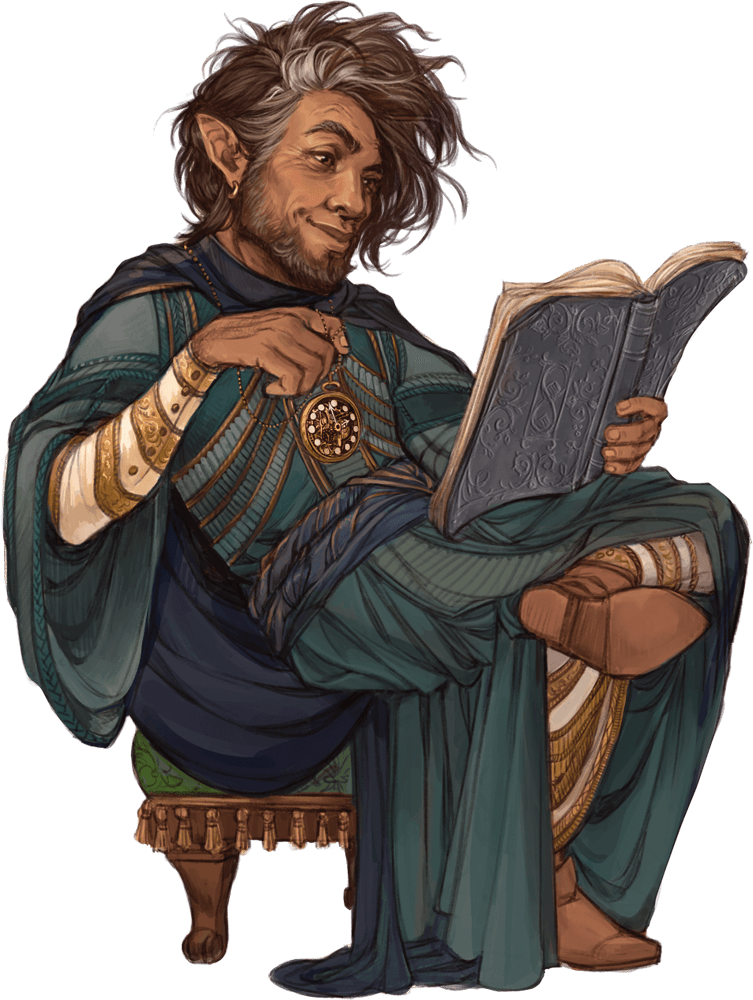
Wizardly Quill: Copying spells is typically a downtime activity, but if your DM is a strict time tracker, this makes you an insanely fast transcriptionist, and allows you to transcribe an enemy spellbook you find VERY quickly compared to normal.
Awakened Spellbook: You can change the damage type of your spells, making you extremely dangerous to opponents who rely on resistance to fire, lightning, and cold…thre three strongest and most common damage types. Remember that the rarest damage type resistances are Force and Radiant/Necrotic. Additionally, being able to cast ritual spells quicker means you can spend less time in front of that puzzle trying to case detect magic or identify.
Manifest Mind: Being able to look around corners and cast through this sensor keeps you out of harms way and effectively increases your spellcasting distance, turning a par-2 spell into an instant cast action.
Master Scrivener: You basically get one extra spell per day.
One with the Word: Arcana is your most important skill, and having advantage on it makes it reliable. It also gives you something to do with your reaction that isn’t casting a spell, and provides a strong defensive ability at that.
School of Abjuration
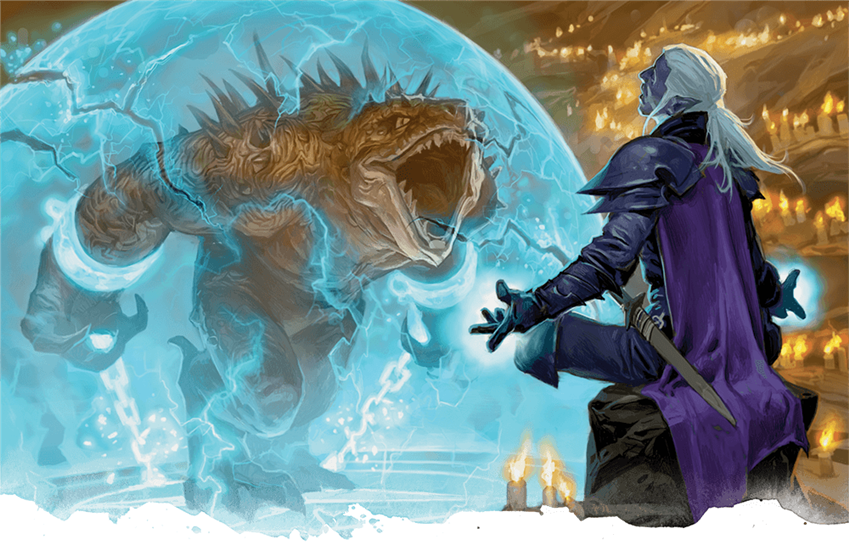
Abjuration Wizards are masters of protective magic. You will specialize in buffs for yourself and your allies, using your school’s talents to add additional wards around your team to shield them from the harmful effects of your environment and your enemies.
Abjuration Savant: Every Wizard subclass gets a savant ability. Copying spells of your chosen school is easier for you, allowing you to expand your knowledge in this area more easily.
Arcane Ward: You ward creates temporary hit points which are not temporary hit points, allowing you to bestow both your ward AND temp hit points to the same creature, for double the amount of protection normally available to safeguard your precious hit points. At low levels this is going to keep you alive. At higher levels, it’s going to primarily be used to keep your nearby party members alive. This relies heavily on you casting Abjuration spells (think mage armor) so make sure you’re loaded up on known and prepared spells of your school. Casting spells off scrolls or magic items counts for this effect, as does the ability to cast mage armor from a warlock invocation, if you’re a cross-classed Warlock.
Projected Ward: This is where your ward gets spicy. You can now use it to absorb damage to any creature within 30 feet. Constantly refreshing it will allow you to protect your allies in melee while you support with spells from a safe (albeit close) distance.
Improved Abjuration: Being able to shut down an enemy spellcaster can decide the outcome of a battle. This ability specifically gives you a boost to counterspell and dispel magic, two of the best ways to prevent and undo enemy magic from affecting you and your allies.
Spell Resistance: This is the Wizard who wins a duel against any other character. By having access to devastating high level spells, and also being resistant to them, you can take care of enemies whether they are melee, ranged, or casters.
School of Conjuration
Conjuration Wizards are masters of translocation and summoning. You are proficient with spells that relocate creatures and objects by bringing them to you out of thin air, or casting them away with a thought. There are a ton of options in the summoning creatures department, and navigating the nuances of them is a task for another day. However, the name of the game is action economy. Whichever side has more actions available to them is likely to prevail, gives even rolls of the dice. Summoning creatures and moving objects around the battlefield to hamper you opponents advances will win the day.
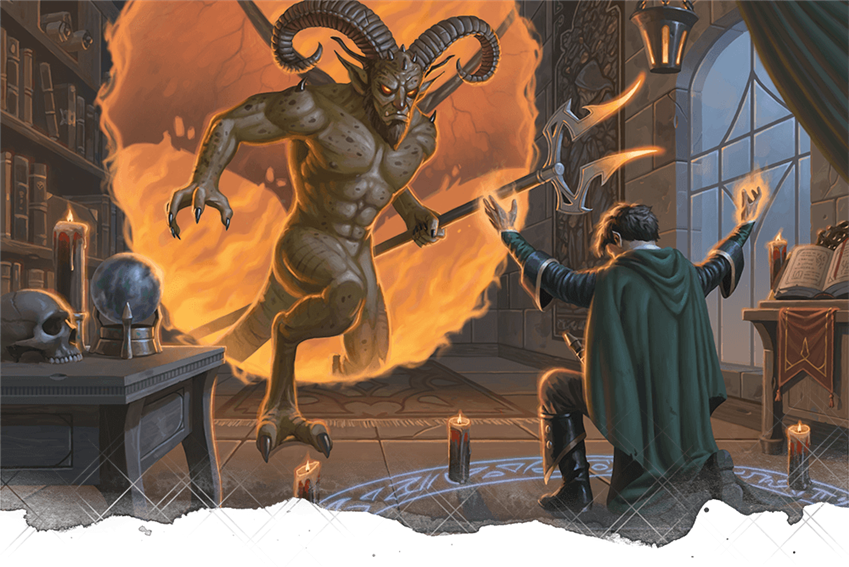
Conjuration Savant: Every Wizard subclass gets a savant ability. Copying spells of your chosen school is easier for you, allowing you to expand your knowledge in this area more easily.
Minor Conjuration: This effect is heavily dependent on your creativity as a player and your DM’s willingness to let you get away with it. You can conjure a key to open a door if you’ve seen the real one, or a weapon in dire straits. You can deceive mundane NPCs with something obviously magical, or summon small objects to set off traps and cause distractions.
Benign Transposition: Switching places with an ally is a great way to bypass obstacles that a wizard can get through with magic, or a martial character can pass by easily with athletics. If one of you is limited, but he other very competent you can make easy work of a trap. Likewise, not wanting to be in melee, you can use this to grant yourself an escape route at a whim. The trade off is that this costs your action, but saves you the spell slot for misty step or similar.
Focused Concentration: Summoning creatures requires concentration. This prevents your minions from being dispelled if you stub your toe.
Durable Summons: Incentive to cast summon spells for more creatures rather than one single large creature. Each additional creature you summon is 30 more hit points to soak damage otherwise aimed at you and your allies.
School of Divination
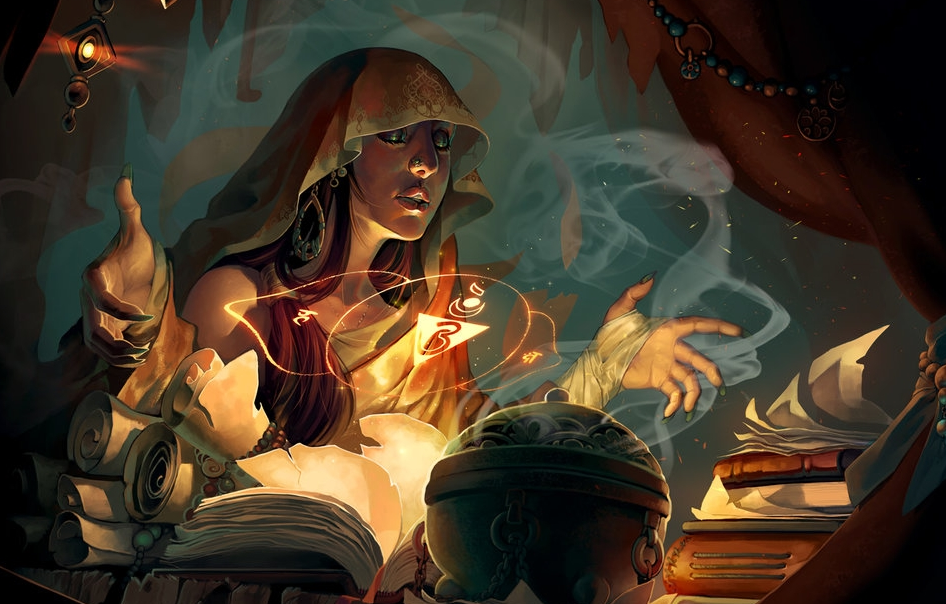
Diviners gain the powerful Portent feature, allowing them to roll two to three d20’s at the beginning of the day and use them to replace rolls, as well as the ability to cast divination spells and incredible little cost.
Divination Savant: Every Wizard subclass gets a savant ability. Copying spells of your chosen school is easier for you, allowing you to expand your knowledge in this area more easily.
Portent: There is no downside to this. High rolls can be used on your own attack rolls or saves. Low rolls can be thrown at your enemies to protect yourself.
Expert Divination: You will be able to cast so many spells, it will make your head spin. Every divination spell gives you back a spell of lower level, exponentially increasing the number of spells you cast throughout the day as you grow in level and gain more spell slots. Upcasting whenever you can gives you the same lower level spell right back.
The Third Eye: This ability affords you several useful options. Choose wisely each day based on your projected encounters. Darkvision is the only effect in this list hat can’t be replaced by a divination spell so if you don’t have it from your ace, you’ll likely be using that a lot.
Greater Portent: You gain a third portent die, which makes the ability even more powerful.
School of Enchantment
Enchanters are the epitome of “save or suck” spellcasters, launching debuffs and control spells at their enemies that will either take them completely out of the fight, or do nothing at all.
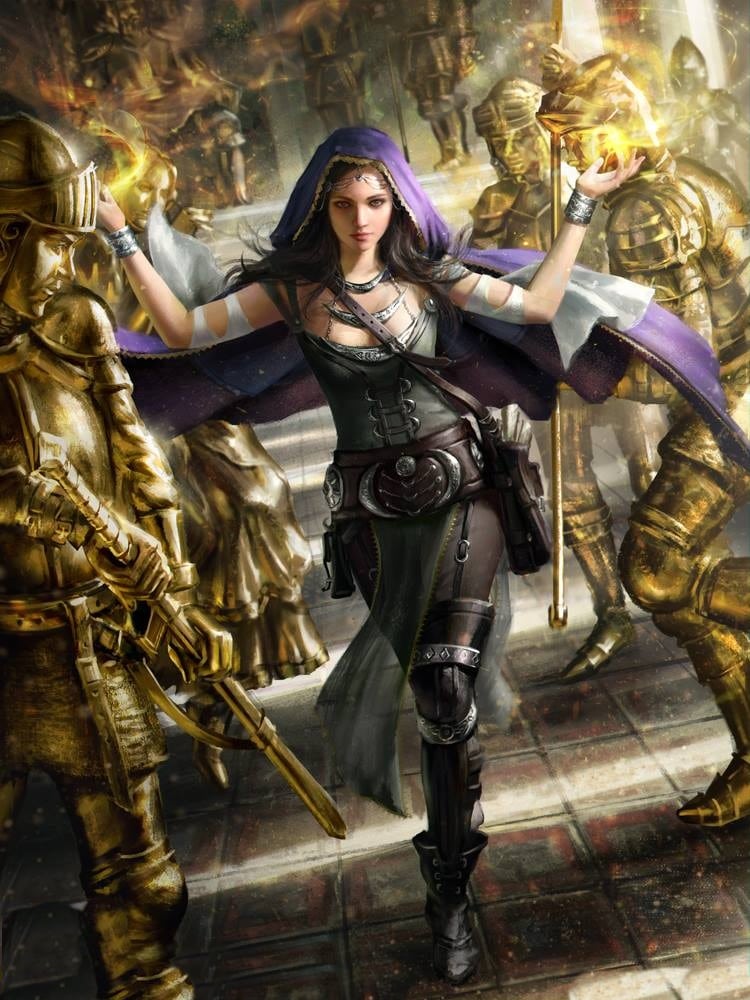
Enchantment Savant: Every Wizard subclass gets a savant ability. Copying spells of your chosen school is easier for you, allowing you to expand your knowledge in this area more easily.
Hypnotic Gaze: Though initially seeming strong, this power is littered with limitations that require you to use your action and lead by the hand anyone you glamour such.
Instinctive Charm: Another powerful yet horribly limited ability. This does nothing for you if there isn’t another target nearby, and allows the attacker a save to resist.
Split Enchantment: The only reason to choose this subclass, Split Enchantment effectively doubles every single-target enchantment spell you can cast.
Alter Memories: This is difficult to use effectively, difficult to role play, and extremely situational.
School of Evocation
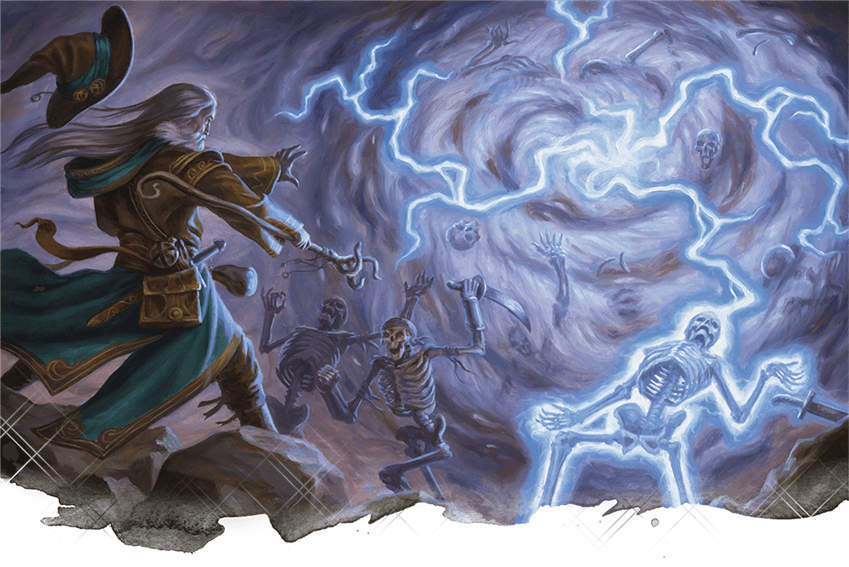
Evocation wizards are the classic blaster. While powerful, it’s the most basic type of wizard. In reality, if you’re looking for high single-target damage, try Warlock. If you want to be an AoE machine, you should really play a Sorcerer for the Metamagic. This class focuses on maximizing cantrip damage ffectiveness, giving it a niche as an all-day elemental damage dealer. It also excels in close-quarters combat where an AoE would normally be detrimental to the party.
Evocation Savant: Every Wizard subclass gets a savant ability. Copying spells of your chosen school is easier for you, allowing you to expand your knowledge in this area more easily.
Sculpt Spells: The ability to exclude your allies from an area spell gives you much more flexibility in placing spell templates on the battlefield, and allows for looser tactics in a grand melee with large numbers of foes.
Potent Cantrip: You’re going to need to delve into books beyond the PHB to find cantrips that are useful with this. They exist, and this ability makes them wonderful choices.
Empowered Evocation: Adding your intelligence modifier to a template can add up to quite a bit of damage to the numerous creatures inside it.
Overchannel: All the best wizard spells are level 5 and lower. Why? because you can cast them multiple times per day. Once you reach this level, you outclass any other caster for damage output, provided you have the template spells to throw around. Fireball, Lightning Bolt, etc. These will be utterly devastating each time you drop one on the battlefield.
School of Illusion
Illusionists have the ability to cast complex, powerful illusions. These spells can go far beyond the normal limits of illusion magic, flowing and seeming to be more real and interactive than other mage’s. The School of Illusions affords control over reality itself, turning the surreal into the real, which turns illusions into dangerous reality in some cases.
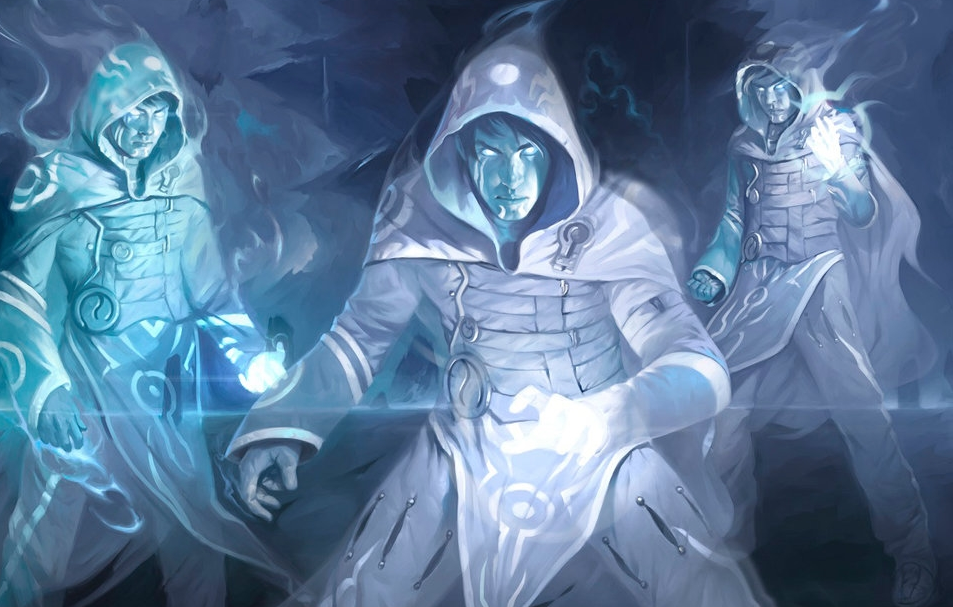
Illusion Savant: Every Wizard subclass gets a savant ability. Copying spells of your chosen school is easier for you, allowing you to expand your knowledge in this area more easily.
Improved Minor Illusion: Minor illusion is one of the most powerful cantrips. In the hands of an Illusionist, it is able to create much more complex effects.
Malleable Illusion: Most low-level illusions spells have restrictions, and this waives the most restrictive of them. Being able to manipulate the illusion over time allows you to accomplish more with a single cast.
Illusory Self: Once per short rest you can automatically dodge any attack.
Illusory Reality: The ability to will a single object into existence from your illusions is a mighty feat. A bridge, a cage, a cart, a key. Anything you can think of becomes real for you at the low cost of a spell slot.
School of Necromancy

Necromancers harness the flow of life and death to heal and harm. They have dominion over the dead, and as such gain the awesome ability to animate corpses to bring terrifying allies into play. It’s a fun class to play for sure, and powerful at that.
Necromancy Savant: Every Wizard subclass gets a savant ability. Copying spells of your chosen school is easier for you, allowing you to expand your knowledge in this area more easily.
Grim Harvest: Every spell you use to kill a living creature heals you. It’s a small amount of conditional healing, but over a long time it adds up.
Undead Thralls: Undead you summon or create are more powerful than normal, granted extra hit points and bonuses to their damage based on your spellcasting modifier.
Inured to Undeath: Necrotic damage and reduction of hit point maximum is a quality reserved for undead creatures. If you’re the only necromancer in town, this will never come up.
Command Undead: If you aren’t encountering any enemies that are undead, this ability is wasted. However, in a campaign themed around the undead, you start gaining allies over your career from the endless ranks of undead you face.
School of Transmutation
In a thematic departure from the other Wizard subclasses, the Transmuter doesn’t gain abilities to augment their spells, but rather gains the use of the Transmuter’s Stone,which has a host of abilities of its own. Most of these are very useful, but are either very situational or lack specialization to the point of near uselssness in an adventure aside from small gimmicks or tricks to entertain.

Transmutation Savant: Every Wizard subclass gets a savant ability. Copying spells of your chosen school is easier for you, allowing you to expand your knowledge in this area more easily.
Minor Alchemy: This is a difficult ability to use effectively. It has a limited scope and duration, and no combat application.
Transmuter’s Stone: The stone offers a slew of abilities, and you can change which one you use at will. This is the main draw of this subclass.
Shapechanger: There are a ton of applications for this, but mainly this is the most basic version of the druid’s Wild Shape and less the earth-shattering might of a normal polymorph spell. The Challenge 1 restriction means you’re limited to small scouting animals, or weak beasts.
Master Transmuter: You have a lot of options here, but again, it’s a hodgepodge list that lacks focus or practical application. Gaining access to Panacea and Restore Life make you a budget Cleric, but a Cleric in the party makes this redundant.
War MagicXGtE
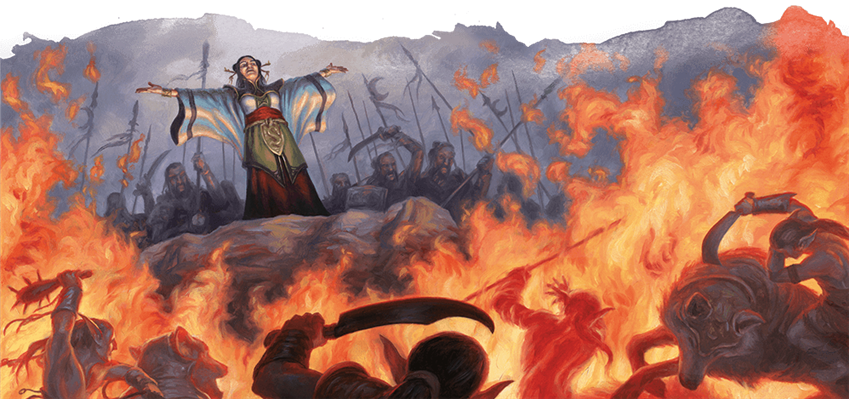
If your focus is destruction and disruption, or you’re focues specifically on fighting and less on support, this is the subclass for you. War Mage fares exceptionally well against enemy mages in addition to being able to our on the damage against mundane enemies.
Arcane Deflection: This is like shield but for saves as well. You’re going to be casting a lot of cantrips to keep this available, but a good wizard knows when to go full offense and when to mitigate defense.
Tactical Wit: Higher initiative means earlier chances to attack, debuff, and reposition.
Power Surge: Extra damage is the name of the game. It’s not a lot, but over time it adds up.
Durable Magic: There are enough powerful concentration spells available to you that you should always have one running, especially when you have a bonus to your checks to maintain them. Make your spells work for you, setting up a continuous effect before starting to play turn-by-turn is always smart.
Deflecting Shroud: More free damage! However, this relies on you being actively attacked, which isn’t ideal, so it’s a mixed bag.
Skills
Acrobatics: You might have the Dexterity to be decent at this, but don’t waste a skill selection, since you get so few. Besides, Acrobatics is less important than Athletics in this edition.
Animal Handling: Leave this to Druids and Rangers.
Arcana: Your primary skill to do with all things magic. Don’t skip it.
Athletics: Not necessary for wizards.
Deception: Not necessary for wizards.
History: You should have the knowledge skills in the party, this is a good one for background and plot exposition.
Insight: If you’re the leader, you need to be able to ferret out clues and liars.
Intimidation: Not necessary for wizards.
Investigation: You likely won’t be the scout, but you’ll definitely be the forensic investigator.
Medicine: Not necessary for wizards.
Nature: Not necessary for wizards.
Perception: Always good to notice your surroundings so you can prepare a spell.
Performance: Not necessary for wizards.
Persuasion: Not necessary for wizards.
Religion: Demonology falls under your umbrella of knowledge.
Sleight of Hand: Only if you’ve got high Dex, and are trying to covertly cast small spells.
Stealth: Staying out of the limelight during a battle is usually a good thing.
Survival: Not the most important, but if you’ve got good Wisdom, this is a good trick.
Backgrounds
Acolyte: Two skills you’ll like and two languages.
Charlatan: Not really up your alley, more for Sorcerer and Bard.
City WatchSCAG: Not great for Wizard.
Clan CrafterSCAG: Skills and tools you’re lacking, but not ones that are necessary.
Cloistered ScholarSCAG: Wizards only care about getting access to Arcana and the rest are us to you for flavor. This background is customizable in exactly the right way for your preferred specialties.
CourtierSCAG: Not great for Wizard.
Criminal: Not great for Wizard.
Entertainer: Not great for Wizard.
Faction AgentSCAG: Another flexible choice, but not enough to get you everything you want.
Far TravelerSCAG: Not great for Wizard.
FeylostTWBtW: Nothing useful for Wizards.
FisherGoS: Not great for Wizard.
Folk Hero: Not great for Wizard.
Guild Artisan: Not great for Wizard.
Haunted OneVRGtR: The list of skills is right up your alley, and the rest of the abilities go well with your need to surround yourself with allies who believe in you and compliment your abilities.
Hermit: Two skills from your list and proficiency with a herbalism kit, making you a budget healer.
InheritorSCAG: The money helps with spell components, but otherwise not ideal.
InvestigatorVRGtR: Your ability to perform forensics with magic would compliment this very well. The skills and tools are far from a Wizard’s specialty, however.
Knight of the OrderSCAG: Not great for Wizard.
Lorehold StudentSACoC: Intelligence-based skills, and more spells off your list.
MarineGoS: Not great for Wizard.
Mercenary VeteranSCAG: Not great for Wizard.
Noble: Not great for Wizard.
Outlander: Not great for Wizard.
Prismari StudentSACoC: Charisma skills, and spells from your list.
Quandrix StudentSACoC: Arcana, a tool, and some spells from your list and the druid list which are rather useful.
Sage: Skills and languages you need and want.
Sailor: Not great for Wizard.
ShipwrightGoS: Not great for Wizard.
Silverquill StudentSACoC: Charisma skills, and spells you won’t use.
SmugglerGoS: Not great for Wizard.
Soldier: Not great for Wizard.
Urban Bounty HunterSCAG: Not great for Wizard.
Urchin: Not great for Wizard.
Uthgardt Tribe MemberSCAG: Not great for Wizard.
Waterdhavian NobleSCAG: Not great for Wizard.
Witchlight HandTWBtW: Nothing useful for Wizards.
Witherbloom StudentSACoC: This background adds healing to your spell list, but is otherwise not useful.
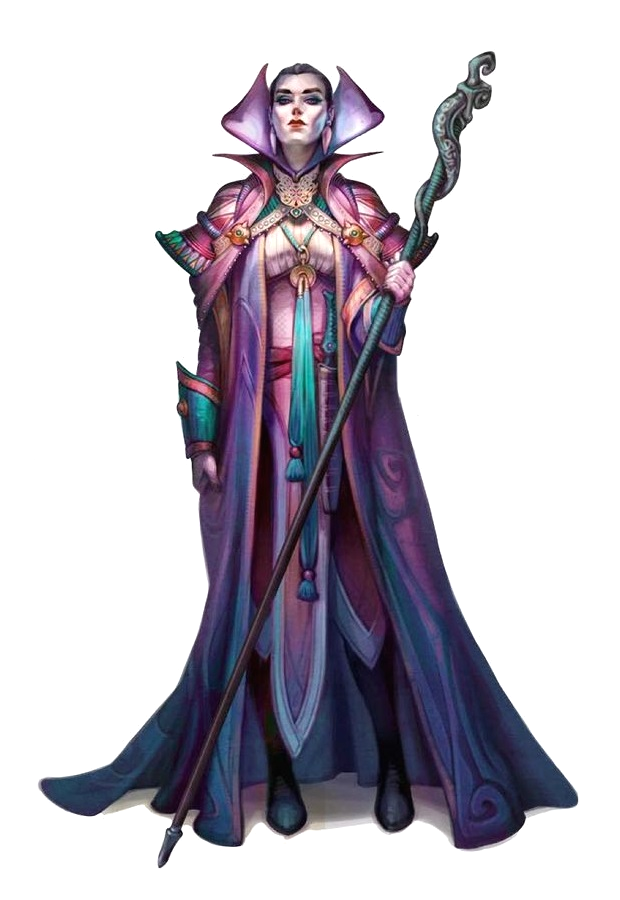
Feats
Alert: The bonus initiative is perfect for getting your battlefield control spells set up before the opponent can act.
Athlete: Not great for Wizard.
Actor: Not great for Wizard.
Charger: Not great for Wizard.
Crossbow Expert: Not great for Wizard.
Defensive Duelist: Not great for Wizard.
Dual Wielder: Not great for Wizard.
Dungeon Delver: Not great for Wizard.
Durable: Not great for Wizard.
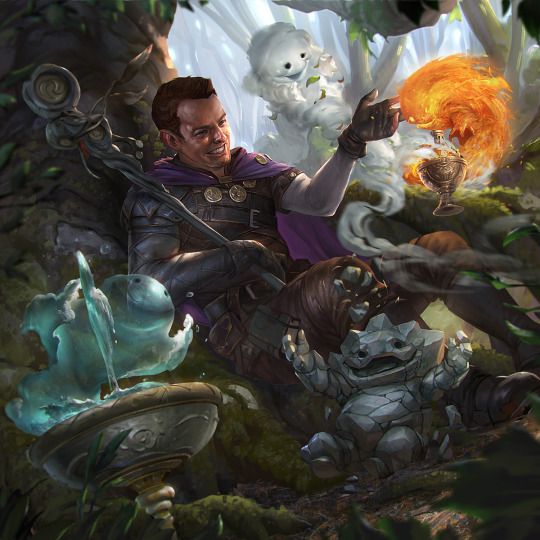
Elemental Adept: A solid choice for an evoker to increase your damage.
Grappler: Not great for Wizard.
Great Weapon Master: Not great for Wizard.
Healer: If you want to be a budget healer, look no further.
Heavily Armored: Not great for Wizard.
Heavy Armor Master: Not great for Wizard.
Inspiring Leader: Not great for Wizard.
Keen Mind: The +1 intelligence is great for when you’re stuck with an odd Int score you’re trying to get to 20.
Lightly Armored: This is the only class you’d want to take this feat. However, you’ve got Mage armor to rely on.
Linguist: Cast Tongues.
Lucky: A solid feat on any character.
Mage Slayer: Not great for Wizard.
Magic Initiate: You have enough spells, and can use scrolls.
Martial Adept: Not great for Wizard.
Medium Armor Master: Not great for Wizard.
Mobile: Not great for Wizard.
Moderately Armored: Not great for Wizard.
Mounted Combat: Not great for Wizard.
Observant: A small Int bonus and some other spicy abilities.
Polearm Master: Not great for Wizard.
Resilient: Con saves for concentration are a weak spot in your spellcasting, mitigate this with proficiency in constitution saves!
Ritual Caster: Unnecessary, you already have this.
Savage Attacker: Not great for Wizard.
Sentinel: Not great for Wizard.
Sharpshooter: This doesn’t apply to magic.
Shield Master: Not great for Wizard.
Skilled: You get precious few choices of skills, so adding more is useful.
Skulker: Not great for Wizard.
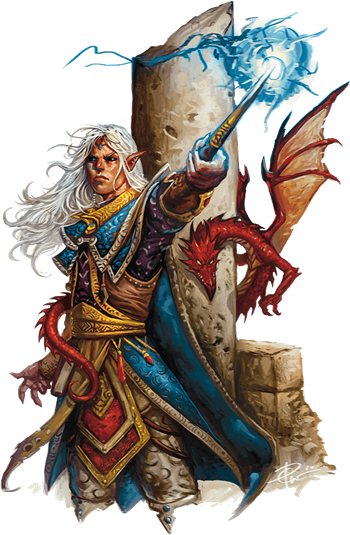
Spell Sniper: This seems good on the surface, but it’s redundant. You’re either already good at spell attacks, or aren’t using them at all.
Strixhaven InitiateSACoC: Magic Initiate is a better choice.
Strixhaven MascotSACoC: Wizards benefit from having a minion to soak up hits and deliver spells.
Tavern Brawler: Not great for Wizard.
Tough: You know False Life.
War Caster: This feat is great, except in an ideal situation you’d never need to use it.
Weapon Master: Not great for Wizard.
Weapons and Armor
Wizards are pitiful when it comes to weapon and armor proficiency. However, you should not leave yourself totally defenseless. Carry a dagger for your rituals, you can always use it to cut ropes, or stab a cretin who doesn’t respect your personal space. At low levels, a light crossbow can do decent damage even compared to your spells, and doesn’t give away your arcane nature in case that matters. If you’re a Bladesinger, go with a finesse weapon like a rapier. In terms of armor, you learn mage armor and shield which should be your go-to for defense until you have access to fly, teleportation spells like dimension door/misty step, or any other combat tricks to keep you out of harm’s way.

Magic
Cantrips
Acid Splash: It’s a low amount of damage, but it’s one of the only cantrips that can potentially hit multiple opponents. And sometimes you just need a bit of acid to melt, burn, or etch something.
Blade Ward: Use the Dodge action.
Booming BladeSCAG / TCoE: Excellent for Bladesingers. Otherwise, this is not a good spell for Wizards to have, as you don’t make many melee attacks otherwise.
Chill Touch: It’s fire bolt but worse damage. The only benefit is that fire is the most common elemental resistance, cold less so.
Control FlamesXGtE: This spell is versatile, but it specifically does NOT CREATE FLAME. It merely manipulates an existing flame.
Create BonfireEEPC: It’s allow-power concentration spell that you can use for a small amount of battlefield control. It’s useful, but there are stronger options in general.
Dancing Lights: A torch does the same thing.
Encode ThoughtsGGtR: An interesting spell, but higher level communication spells far outstrip this in range, use, and interestingness.
Fire Bolt: Ol’ Reliable. Your highest damage cantrip with good range.
Friends: This is a difficult spell to use. The target specifically knows they were charmed when it ends, which could undo the goodwill you just obtained.
FrostbiteXGtE: The damage is low, but imposing disadvantage is the real treat here. A free, repeatable annoyance spell for all occasions.
Green-Flame BladeSCAG/TCoE: This spell is excellent for Bladesingers, less so for other wizards who don’t fight with melee weapons.
GustXGtE: Borderline useless.
InfestationXGtE: Constitution saves are tough to beat on most monsters, but being able to force movement could potentially provoke an attack of opportunity.
Light: You could always use a torch, but everyone loves a little Lumos now and then.
Lightning LureSCAG / TCoE: You will find a hundred creative uses for this spell, and forcing movement is always interesting. It has short range, and will bring you into melee, so have an escape plan ready, or a strong ally nearby.
Mage Hand: You simply need this spell. You will use it for everything from testing trapped objects, to touching cursed objects, to picking up dangerous objects…
Mending: Very situational, and can be accomplished with a tool proficiency.
Message: Situational. If you’re playing a game with lots of stealth and intrigue it might be fun.
Mind SliverTCoE: Psychic damage and an Intelligence save, both rare things to find.
Minor Illusion: This spell is limited only by your imagination.
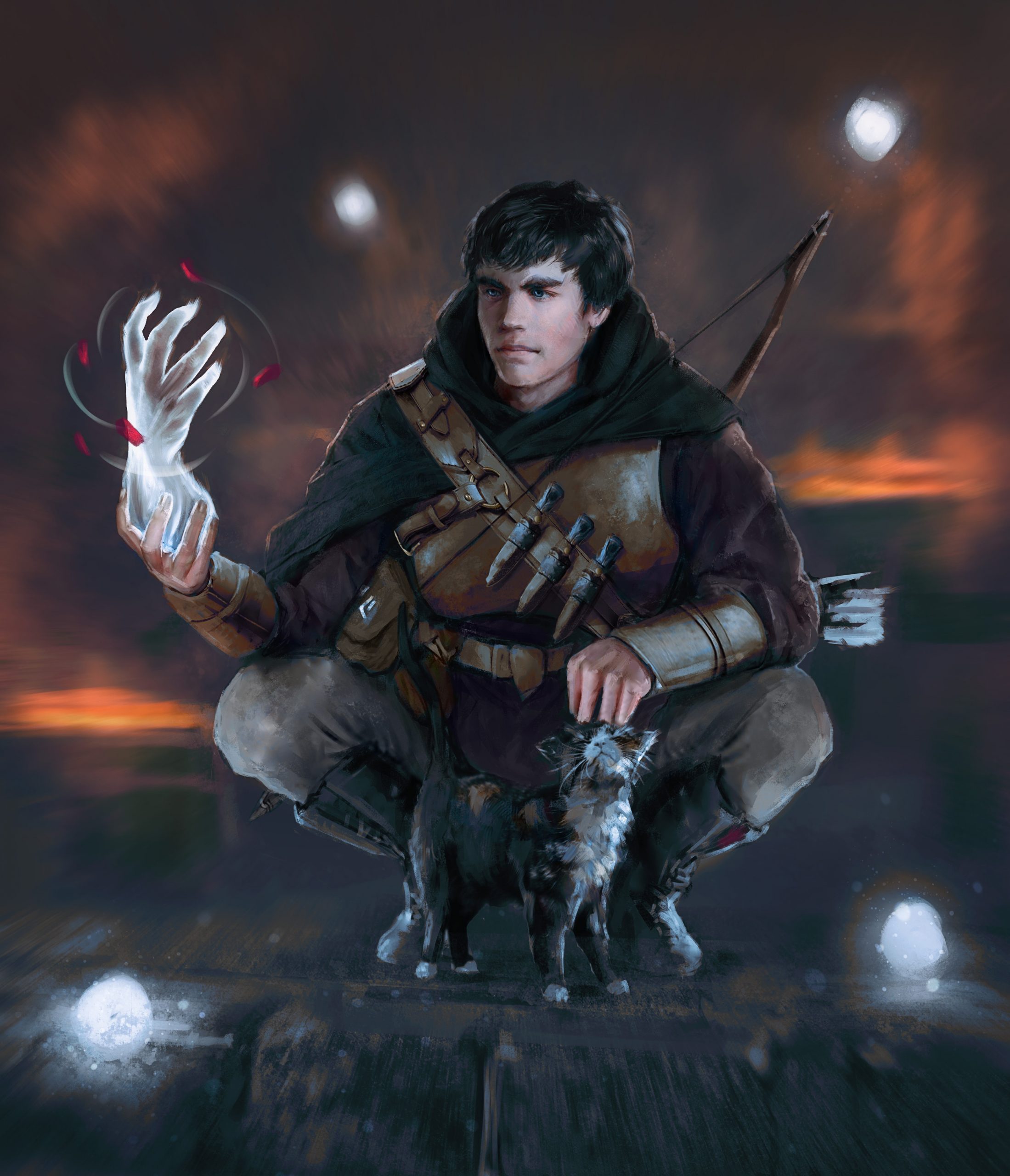
Mold EarthXGtE: “Magic Shovel” is a weak use of one of your precious few cantrips.
Poison Spray: Decent damage, but a commonly resisted type and a save instead of an attack roll.
Prestidigitation: The Wizard catch-all for magic in general.
Ray of Frost: Frostbite is much better.
Shape WaterXGtE: Another practical and versatile spell. Water is more useful than earth, wind, or fire as an element to control, because this spell specifically lets you freeze and thaw it, allowing you the best of all worlds.
Shocking Grasp: So you’re a wizard who got grabbed by a guy in full plate. ZAP. Find yourself too close for comfort to anyone wearing armor? ZAP. The advantage on the attack roll, reaction debuff, and mediocre damage make this a great last-resort to otherwise cowering in fear of a man with a big stick looming over you. Not so great against monsters, but hat’s what fire bolt and the like are for.
Sword BurstTCoE: Bladesingers can do wonderful things with this.
ThunderclapEEPC: Poor damage and a Constitution save make this passable.
Toll the DeadXGtE: Medium range and d12 damage.
True Strike: There are better ways to get advantage without wasting a turn. And attacking twice in consecutive turns is a better option.
1st-Level Spells
Absorb ElementsEEPC / XGtE: You’re almost never going to get the damage bonus on an attack, but the defensive ability here is second to none. For a measly first-level spell you can safeguard your self from a low-level breath weapon or elemental spell.
Alarm: This is an awesome ritual spell, and should be routinely cast before you go to bed each night.
Burning Hands: A low-level AoE with moderate damage. Your cantrips will outclass this, as will your higher level spells.
CatapultEEPC: Decent damage, and though the “save negates” is always hard to see, if you have two targets in a row, you can hit the second one if the projectile misses the first.
Cause FearXGtE: Low-level fear! While it doesn’t remove the affected creatures from combat, it’s a solid debuff for a first-level spell.
Charm Person: Covertly casting this outside of combat is a gamechanger. In combat, it’s tricky to make it stick and continue to hold it’s effect if the target is getting attacked from all sides.
Chromatic Orb: Very good variable type damage with good range.
Color spray: Overall, this is a weak spell. Short duration, too.
Comprehend languages: Another great ritual cast. Remember this only lets you understand, not speak every language.
Detect Magic: An essential spell no Wizard should go without. Ritual cast it and hold it as long as you can outside of combat while exploring a dungeon.
Disguise Self: A spell that replaces proficiency with a Disguise Kit.
Earth TremorEEPC / XGtE: Low damage, and prone only costs half your speed to stand up, so it’s a minor inconvenience.
Expeditious Retreat: Use the Dash action.
False Life: When you’ve got plenty of higher level spells available, this is a great way to use your 1st-level slots. You basically get another hit die with this.
Feather Fall: You’ll always find a use for this, whether you fall accidentally, or need to safely and quickly descend from a tall height.
Find Familiar: Between the spell sharing, carrying, scouting, and distraction they provide, a familiar is a fantastic asset. Cast this as a ritual whenever you need a friend.
Fog Cloud: Near useless outside, as a stiff breeze ruins it. But generally, this is a great way to cover your escape.
Grease: Even if you get them down on the first save, it’s less than one-movement in area, so the affected creatures can just move out of the area.
Ice Knife: Barely better than acid splash, and it allows both an attack roll and a save to avoid.
Identify: The only way to ensure that magic item isn’t cursed before you pick it up.
Illusory Script: Near useless, and expensive at that.
Jump: Climb, teleport, or fly. This loses all use after 3rd level.
Longstrider: This ages well, becoming a decent use of a 1st-level spell once you have access to much higher level spells.
Mage Armor: This is your only shot at armor without cross-classing.
Magic Missile: This is the only sure thing in the game. Damage, guaranteed. It’s not much, but sometimes you just need to make sure you hit, and you only need a little bit more. Good for evasive enemies, fliers, familiars, etc.
Protection From Evil and Good: Situational, but very strong.
Ray of Sickness: Low damage, but the disadvantage imposed by poison is solid.
Shield: This and Mage Armor are your defensive suite for a 1st-level abjuration specialist.
Silent Image: A huge upgrade over minor illusion. If you’re proficient in Perform/Deception, or have a Bard who is, you can make some pretty convincing mirages.
Silvery BarbsSACoC: Imposing disadvantage on an enemy and granting advantage to an ally as a reaction provides a very useful tactical advantage.
Sleep: This is the best 1st level spell until you get second level spells. As soon as you have enemies with more than three hit dice, however, the effectiveness of this drops off dramatically.
SnareXGtE: A magical trap, mostly effective in tight spaces, and easily bypassed in the wilds.
Tasha’s Caustic BrewTCoE: This spell has the potential to deal massive damage over the duration, but it’s difficult to use effectively. It’s an efficient cast, giving you a long duration of effect with a single 1st-level spell slot.
Tasha’s Hideous Laughter: A hilarious way to take a single opponent out of the fight.
Tenser’s Floating Disk: It carries heavy objects for you, and that’s it. You can’t surf on it, you can’t fly on it, you can only use it to move things you’re too weak to carry yourself. Useful, but severely limiting.
Thunderwave: It’s technically a good battlefield control spell, but he short range means you need to be in danger to use it.
Unseen Servant: For the Wizard Tower you someday hope to own and live in, this is necessary. Until then, skip it.
Witch Bolt: Magic Missile is better.
2nd-Level Spells
Aganazzar’s ScorcherEEPC: Lines are the worst template, and the damage is subpar for a second level spell.
Alter Self: This is a poo middle ground between Disguise Self and Polymorph.
Arcane Lock: It’s an expensive spell to cast, though powerful against any mundane thieves.
Augury: It’s a ritual! This is the best divination sell because it’s cheap and simple, leaving no headaches for the DM.
Blindness/Deafness: Blindness is the worst status effect for any weapon user or caster, as it imposes disadvantage on their attacks. Deafness isn’t as bad.
Blur: A very powerful defensive buff, taking a lot of heat off of you.
Borrowed KnowledgeSACoC: Burning a second level spell slot for a self-only temporary skill proficiency isn’t too great. The only time this is worth it is if you’re going to spend an hour doing a repetitive task, making many of the same roll. Otherwise, get a specialized party member to perform said task, or use guidance, a cantrip, which can be cast on anyone.
Cloud of Daggers: A slight upgrade over Create Bonfire in terms of function, giving you a damage window at the start of turn rather than at the end of turn.
Continual Flame: Light is important for those of us without darkvision. This is much better than the light cantrip.
Crown of Madness: The limitations on this make it terrible.
Darkness: Situational, but useful when it’s appropriate. It can cover an escape, temporarily disorient enemies, and cause a distraction.
Darkvision: Pretty much every race has darkvision in 5e, so this will rarely come into effect.
Detect Thoughts: Situational, but in an intrigue campaign this could be your bread and butter.
Dragon’s Breath: Should have been a Dragonborn! The damage on this is less than stellar. The versatility is its strength.
Dust DevilEEPC: Basically useless.
EarthbindEEPC: Bringing a flying enemy into melee range is often the only reliable way to take it out at low levels. You’ll be strapped for powerful ranged spells, but once it’s nearby your allies should make short work of it.
Enhance Ability: This provides a lot of options depending on what you need.
Enlarge/Reduce: A buff or a debuff when used on a creature. When used on objects, it’s got a lot of utility. Barricade a door with a curiously large chair, shrink something too heavy to carry normally.
Flaming Sphere: It’s an efficient cast, taking up your concentration and bonus action, but it’s lackluster compared to some other options available at his level, especially in terms of fire damage.
Gentle Repose: This is almost ot situational to even bother learning, best to have a scroll of it in case you need it.
Gust of Wind: Not as useful as it leads itself to be.
Hold Person: Paralysis essentially makes someone a sitting duck, allowing for automatic critical hits. However, it only effects a small subset of al the threats you will face, and they get a lot of chances to break out of the effect.
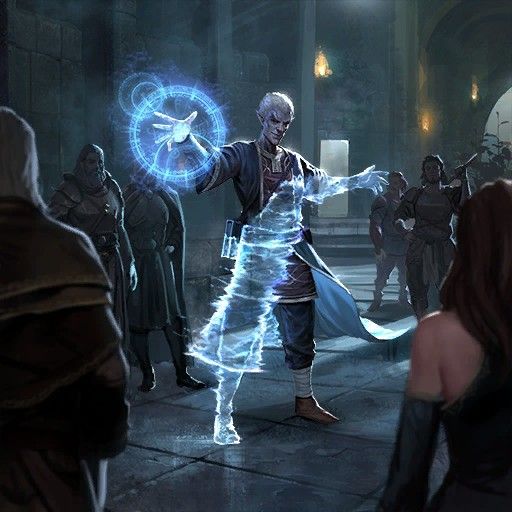
Invisibility: The best scouting and infiltration tool, and a great way to confuse and compound your enemies during combat. Long duration means you can use it for both in the same cast if you time it right.
Kinetic JauntSACoC: A bonus action speed boost and escape tactic that is outclassed by expeditious retreat, a 1st-level spell which lets you dash. This is a corner-case escape a “red-rover” line of enemies trying to keep you in place.
Knock: If you don’t have a rogue or anyone with proficiency in thieves’ tools, this is mandatory. Otherwise, leave it to a skill check.
Levitate: Early flight and/or telekinesis with great utility.
Locate Object: When you really need to use it, plot reasons are going to stop it from being effective.
Magic Mouth: It’s a ritual, so whatever. This is a fortress-building spell if anything.
Magic Weapon: This will only last you until about 5th level or so, when your party should all have magic weapons of their own.
Maximilian’s Earthen GraspEEPC: This spell is much better than most enchantment spells you would use to hold your opponent in place. This reads more like Hold Monster than anything else.
Melf’s Acid Arrow: Upcasting Chromatic Orb gives you higher average damage than this, and you can choose any energy type.
Mind SpikeXGtE: Not a good spell.
Mirror Image: A very strong defensive option. This spell will effectively soak up three attacks against you with decreasing frequency. The fact hat it doesn’t require concentration makes it a great defensive measure.
Misty Step: Your go-to teleportation spell. And it’s a bonus action too!
Nystul’s Magic Aura: Unique, but very situational.
Phantasmal Force: A crazy amount of damage for a 2nd-level spell, and it ties up a creature with low intelligence for a very long time. This is an al-star spell.
Pyrotechnics: Very situationally useful. Even the debuff is underwhelming, lasting only a single round. A second level spell causing a distraction? That’s what most of your Cantrips are for.
Ray of Enfeeblement: This is closer to a cantrip than a 2nd-level spell. Skip it.
Rope Trick: This is a great personal panic room
Scorching Ray: Solid, multi-target damage.
See Invisibility: This is very important at higher levels, once you start facing powerful enemy casters who have invisibility as a primary means of defense.
Shadow BladeXGtE: This is a really great spell, but not for you. In any other situation, this spell would be awesome, but melee should scare you. You’ve got no armor and d6 hit dice, so watch out.
Shatter: This is your fireball before you actually get fireball. It’s got good damage and range and will do a lot of work before you get to your 3rd level bombs.
SkywriteEEPC: This is silly and unnecessary.
Sniloc’s Snowball Swarm: Less useful than shatter.
Spider Climb: Without flight, this is a great option for increased mobility, especially indoors.
Suggestion: A powerful mind control spell with a long duration.
Tasha’s Mind WhipTCoE: Complex, powerful, and totally bizarre compared to the rest of your list, but that’s what we’ve come to expect from Tasha these days.
Votrex WarpSACoC: A constitution save vs a guaranteed 8d6 fall damage at 2nd level is pretty solid. Being able to relocate an enemy to a locked room you can see through a window, or over a much steeper drop is also invaluable.The target may also choose to fail, so you can use this to rescue or relocate an ally as well.
Warding WindEEPC: being deafened isn’t as impactful as you’d think. The difficult terrain is the real draw of this spell.
Web: A really great crowd control option. A bonus second effect is its susceptibility to fire, burning off and quickly releasing its hold if its hit by a fire AoE like fireball.
Wither and BloomSACoC: Firing off a small AoE that heals allies and harms enemies can turn the tide of a tight knot of melee combatants. The spell scales well, and is more useful when used on melee allies with larger hit dice.
3rd-Level Spells
Animate Dead: A solid summon, but amazing for a necromancer. Undead don’t tire, don’t need air/food, and aren’t likely to have feelings, so when you need something disposable and don’t want to offend anyone who cares about animals, these are your workhorse summons. The duration is long, allowing you to get a lot done with them.
Bestow Curse: This is the pinnacle of debuff technology, giving you options depending on who you’re up against and exactly how you want to hinder them.
Blink: A decent buff that isn’t as useful as it is convenient in that it doesn’t require concentration.
CatnapXGtE: An interested spell for quickly short-resting. If you’re a cross-class Sorcerer/Warlock you can chain this for great effect.
Clairvoyance: A great spy camera with a huge range and decent enough duration.
Counterspell: An obvious choice for caster duels. Negate their spells 1-for-1.
Dispel Magic: The only thing better than magic is the ability to get rid of it when it’s causing you trouble. This is a must for any party.
Enemies AboundXGtE: When fighting large beasts that try to stomp on you, look for the one with the worst intelligence save and let him do the heavy lifting for you.
Erupting EarthXGtE: less damage than fireball, but it also creates an area of difficult terrain, which keeps enemies grouped closer together, which keeps them in range for fireball.
Fear: a non-violent way to deal with groups of enemies.
Fireball: This is the yardstick against which all other AoE spells are measured. It does great damage in a huge area with long range. Whenever you choose a spell to know think to yourself “is it better than fireball?” If not, just upcast fireball.
Flame ArrowsXGtE: Not worth the spell slot. Just cast fireball and hit all the damage at once.
Fly: Flight is the best mobility option available.
Gaseous Form: Situational, but a great way to infiltrate, scout, or escape.
Haste: The best buff around. Any character benefits greatly for this, specifically one with heavy attacks. .
Hypnotic Pattern: one of the few effects that can remove creatures from combat and doesn’t give them additional opportunities to save to end the effect on their turn. This spell is incredibly powerful at low levels, and remains relevant at later levels.
Intellect FortressTCoE: This is your best protection against spellcasters or enemies who rely on saving throws to stun you or otherwise trip you p.
Leomund’s Tiny Hut: Eight hours of blissful slumber waits you inside this five-star resort of a dungeon shelter. With this spell, you can complete a multi-day dungeon crawl without needing to come up for air.
Life TransferenceXGtE: This is “healing” but at a higher cost than you’re likely going to want to pay. Wizards already have few enough hit points, they can’t really be giving them away, especially not at the cost of a spell slot.
Lightning Bolt: Line effects are really hard to use. You can reliably hit two enemies, but getting more than that is complicated. Great damage on this though.
Magic Circle: This spell is very situational, but it is essential to any sort of occult/supernatural campaign that will see you summoning or binding outsiders.
Major Image: The best illusion spell. Period. You can do almost anything with it.
Melf’s Minute Meteors: Complicated. It consumes a lot of actions to use properly and completely, but deals a lot of low-damage bursts at several targets.
Nondetection: This is a very good spell, but you’re not going to need it most times. You can usually get by with pass without trace from arranger or druid, and some stealthy characters like a rogue and monk. Stacking this on top of invisibility is overkill.
Phantom Steed: A budget travel option. If you can buy./rent/build/steal a wagon, your magic can ritual summon ahorse and you can sit in the back recasting it once an hour to keep it going.
Protection from Energy: a really great preventative buff. The downfall is that it requires concentration, so it’s designed to fall eventually.
Remove Curse: Situational, irreplaceable, the Cleric’s job, and also available to prepare tomorrow. Put it in your spellbook, but only prepare it when you need it.
Sending: This is very useful, but you won’t always need it. This is a good spell to get imprinted on an item, like sending stones instead of worrying about spell slots for it.
Sleet Storm: It doesn’t deal damage, but in the case of trying to take someone alive that’s a good thing. Also, if you’ve got support in the form of other powerful combatants merely hampering your enemies is enough to let them get into position.
Slow: A really great debuff that severely handicaps the target. Be wary, it’s considered a charm effect, and some enemies have immunity to them.
Speak with Dead: This is either mandatory for plot reasons, or can be replaced by a history check. However, it’s the best way to extract information from an enemy who is particularly dangerous. Kill them first, ask questions later.
Spirit ShroudTCoE: Bladesingers can get some good use out of this, though there are probably better spells overall to use.
Stinking Cloud: Sleet storm has a better area and roughly similar effect, taking creatures out of combat for a round or two.
Summon Lesser DemonsXGtE: This is utter chaos. You don’t get to control the demons, they just….do their thing.
Summon FeyTCoE: Better than demons, not as good as undead.
Summon ShadowspawnTCoE (Optional): Slightly better than Fey, but still not close to undead.
Summon UndeadTCoE: Choice of zombies or ghosts gives you excellent utility either in combat or for scouting missions.
Thunder Step: It takes an action to cast. Misty step is more useful for mobility, and any other AoE is better for damage. In the rare case you need both, this is your go-to.
Tidal WaveXGtE: Being knocked prone isn’t too much of an inconvenience in general.
Tiny ServantXGtE: This is basically a sentient sentry. It can set a watch and do simple tasks, but is still limited. That said, the fact that you can remain alert while asleep or otherwise preoccupied while this is active makes it extremely useful.
Tongues: If you’re the party spokesperson (with your high Charisma) you’ll want this so you can communicate with any creature.
Vampiric Touch: A very efficient use of a spell, in that it gives you several rounds of options. However, it’s purely a melee attack option, so it’s dangerous to use for wizards.
Wall of SandEEPC / XGtE: It’s going to slow enemies down for a single round. For that short duration, you’ve got control spells at lower levels that might work out for you.
Wall of WaterXGtE: Warding Wind is generally better and a lower level.
Water Breathing: Situational, but the long duration and lack of concentration makes it a solid all-day buff.
4th-Level Spells
Arcane Eye: This is a powerful scouting option, and can almost entirely replace a scout character.
Banishment: One of the best spells in the game. It can straight up end an encounter. There are few things that can win a Charisma save off a decent bonus. This is definitely worth upcasting when the situation merits.
Blight: It doesn’t deal enough damage to be worth the precious 4th-level slot.
Charm MonsterXGtE: A very good option for trying to take ‘em alive.
Confusion: Unreliable. Skip it.
Conjure Minor Elementals: The Summon spells from Xanathar’s Guide are generally better than the Conjure spells from the Player’s Handbook.
Control Water: This spell is functional and flexible, but it is also very situational.
Dimension Door: Misty Step is usually enough for your fast acting teleportation needs.
Divination: Expensive, but very useful.
Elemental BaneEEPC / XGtE: A necessity for a wizard who only has access to one or two elements, and those that are commonly resisted even more so.
Evard’s Black Tentacles: This is a really fun area-control spell that restrains and damages creatures, and it relies on the affected targets spending an action to make a check to escape.
Fabricate: The fact that his only works on raw materials means you can’t assemble or transmute anything already made. As written, this spell is nearly useless, only barely edging out a skilled craftsman.
Fire Shield: This is a Bladesinger buff only.
Greater Invisibility: Invisibility is very good and is exponentially better on rogues and ranged casters.
Hallucinatory Terrain: Situational and not a combat cast.
Ice Storm: As far as AoE’s go, this spell is the worst for its level.
Leomund’s Secret Chest: Situational and weak for a 4th-level spell.
Locate Creature: For lack of a proficient tracker, this is your wizardly option to locate your quarry.
Mordenkainen’s Faithful Hound: Tint Servant is a better sentry, given it’s range and ritual casting ability. The hound is invisible, so that’s the one advantage with this spell.
Mordenkainen’s Private Sanctum: This is a great fortress-building spell, but loses utility on campaign.
Otiluke’s Resilient Sphere: This is the perfect way tot ake one creature out of the fight with a single save. Use it to hamper a powerful enemy while you clean up the minions, or to protect a mark while dealing with captors.
Phantasmal Killer: Another all-star single-target debuff that has a chance to kill. If you’re trying tot ake them alive, use resilient sphere. To get rid of them, use this.
Polymorph: A really powerful and incredibly versatile spell that allows you to become a powerful creature in lieu of your frail caster self.
Sickening RadianceXGtE: Creating a 10-minute storm that deals 4d10 damage per round is enough to kill most things. Combine this with some sort of control spell, a wall, or just a closed door room and anything trapped within is going to fry.
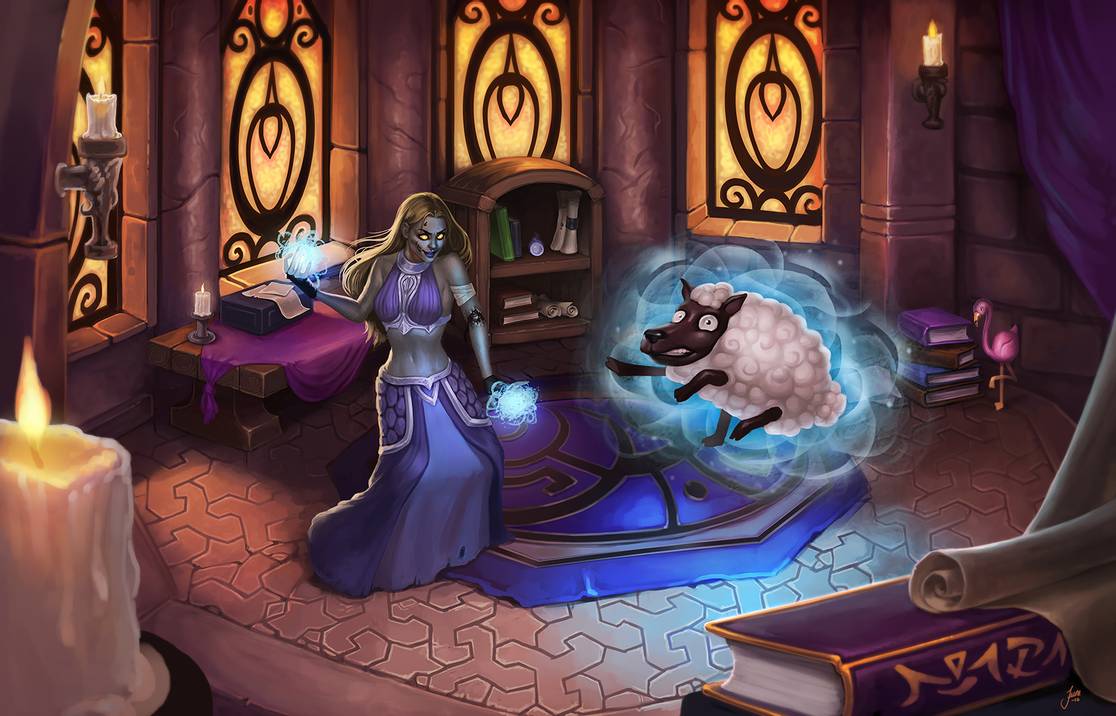
Stone Shape: This is one of the best spells in the game. You can pas through a wall, create art, create a minor object, entomb a creature…the possibilities are endless.
Stoneskin: A really solid buff, but by the time you get it you’re more likely to face magical attacks than anything.
Storm SphereEEPC: Sickening radiance is strictly better at this level.
Summon AberrationTCoE: All three options are really solid.
Summon ConstructTCoE (Optional): A very durable list of options to summon, though slightly worse than Summon Aberrations.
Summon ElementalTCoE: Against the other Summon spells at this level, the major benefit of this spell is the ability to summon a creature with energy resistance and an upgraded movement mode. Elementls aren’t as offensively powerful as constructs or aberrations, but they can fly, swim or burrow.
Summon Greater DemonXGtE: Hopefully your save is high and the demon either continues to roll low or you’re able to strike a bargain with it, because as soon as it breaks free from your control you’re likely in trouble. The demon is quite powerful, and as long as it’s on your side you’re in good shape.
Vitriolic SphereEEPC: A great AoE, not only does it hit for a huge amount of acid damage, it hits again at the end of the next turn as well.
Wall of Fire: One of the best control spells. It deals great damage and has a huge area of effect.
Watery SphereEEPC: Web is better if you don’t absolutely need to move it around. This spell allows so many saves to resist it.
5th-Level Spells
Animate Objects: This spell is incredibly useful. If you’re going to be using it often, you’ll want to carry a bag of holding full of a variety of objects to animate for different purposes. A single, large object can turn the tide of a battle by providing cover, drawing fire from unintelligent enemies, and taking up space. Mane small objects can get you way ahead on action economy alone, and surround a single powerful foe to keep them hemmed in and provoke a ton of opportunity attacks.
Bigby’s Hand: Versatile and very useful, you can defend, support, and attack with it to great effect.
Cloudkill: Waft this murder fart through ranks of troops to soften them up before you engage. It’s affected by wind, so combine this with a gust spell to move it more precisely.
Cone of Cold: One of the “it” spells for evokers, a 60-ft cone is an absolutely enormous area. It deals decent damage, but not much more than an upcast fireball. Constitution saves are usually pretty high for larger monsters, so this is better used as crowd control.
Conjure Elemental: Technically the DM chooses the creature and you not only get to pick the type. Hopefully they are on your side and give you a good one!
Contact Other Plane: You’ll pass the Intelligence save relatively easily, making this an awesomely powerful and useful spell for a wizard.
Control Winds: While rather situational, this spell really shines against enemy archers, sailing ships, and flying creatures.
Creation: Aside from the size limitations, this spell solves almost any problem provided you’re clever enough to come up with something for it.
Danse MacabreXGtE: This spell is complicated, both for player and DM, and requires a subjective ruling on the stats of the animated corpse if it isn’t something already included in the undead section of the monster manual.
Dawn: Daylight is usually enough when you need sunlight as a weapon/deterrent from evil creatures, the big draw here is that you can move it.
Dominate Person: A very strong spell for removing an enemy from combat, or forcing a creature to do your bidding otherwise. It only effects humanoids, so it’s use is much diminished.
Dream: Players are rarely if ever going to cast this; this spell is more of an NPC messing with you type of trick.
Enervation: This should be your “last spell.” If you run out of spells and have an encounter ahead of you, cast his and use your action for the whole combat to deal automatic damage to the big bad.
Far StepXGtE: Flight or invisibility are better options for long-term mobility. If you need a teleport, misty step does about the same, and is a much lower level.
Geas: You don’t need this. It’s a fun and interesting spell, but you never need it.
Hold Monster: A great way to pull a single creature out of combat. The fact hat it hits all creature types and not just humanoids means there’s no one who can negate the effect.
ImmolationEEPC: Useful against a single target only. Generally with the higher level spell slots you want to go for a wide area of effect to catch more creatures in, especially for a save negates type spell.
Infernal CallingXGtE: For some reason there are a ton of spells to summon a demon you don’t directly control. The demon is trong, but he lower level version of this is usually adequate to get in touch with the lower planes, and there are better, more reliable summons if you’re trying to dish out damage.
Legend Lore: This spell should be called “Read me your fluff” because it’s equivalent to just asking the DM for more information about the world, rolling ahistory check, or role-playing with some NPCs a bit.
Mislead: Less creative than illusions or spells like charm person.
Modify Memory: Obliviate! This spell is amazing for what it does, though it might not come up often.
Negative Energy FloodXGtE: Another complicated stat block exercise. You’re either going to get something punishingly creative, or mind-numbingly mundane.
Passwall: If you want to use stone shape to get through a rampart, this is the better option.
Planar Binding: A 1,000 GP price tag is a bit steep, given the other summoning options available at this and lower levels.
Rary’s Telepathic Bond: This is the best means of non-verbal communication available to you. Great for infiltration missions.
Scrying: Where divination is subjective, this is a direct observation.
Seeming: Very situational. This is hard to justify choosing as one of your limited spells known over some other options this level.
Skill EmpowermentXGtE: A useful spell, but too high level to be worth it. By the time you get here, if you have a well-rounded party someone’s got to have the skills required.
Steel Wind StrikeXGtE: Bladesingers only, short range and medium damage.
Synaptic StaticXGtE: A psychic fireball with a built-in debuff.
Telekinesis: One of the most versatile spells available. Ten minutes of telekinesis can overcome a whole room of debris, a trap, movement of heavy objects, clearing obstacles, etc. In combat, you can use it to toss enemies around or throw things at hem. You can move your allies around to position them off-turn.
Telepathic Bond: This is a great high-level ritual cast.
Teleportation Circle: Situational, but the best option for moving your whole group until you get a proper teleport spell going.
Transmute RockEEPC / XGtE: You can create or destroy large structures with this spell. If you ave a good understanding of static mechanics, you can do some truly devastating things in a city with this.
Wall of Force: This wall is nearly impenetrable, and it’s very large. Great control.
Wall of LightXGtE: The damage is low, but the blinding effect is great for disorienting enemies.
Wall of Stone: The ultimate battlefield control spell. Wall of enemies for a moment of reprieve, to diminish their number attacking you directly, or trap them for the duration. It’s a concentration spell as well, so you can use it to trick and then quickly dismiss it.
6th-Level Spells
Arcane Gate: Very Situational. Fly is better for moving your party the distance if time is not of the essence. Passwall gets through a boundary, and Teleportation Circle is better overall for travel.
Chain Lightning: Excellent damage at a great range. It’s always tough to catch a lot of enemies in lines of effect, and chain lightning overcomes that by branching.
Circle of Death: Lower damage than fireball but an area twice as wide, meaning overall you have the capacity to deal much more damage. Also, the damage type is less commonly resisted.
Contingency: This spell is incredible. It’s your insurance policy. Pair it with a defensive buff to kee yourself alive, cast it before resting to deter an attack, and once you have access to wish you can make it do literally anything you want.
Create HomonculusXGtE: An expensive upgrade over find familiarbut worth it for the price. The Homunculus acts on its own, and can perform more complex tasks than a standard familiar.
Create Undead: Animate Dead is a lower level alternative that doesn’t lose to much compared to the higher level version here.
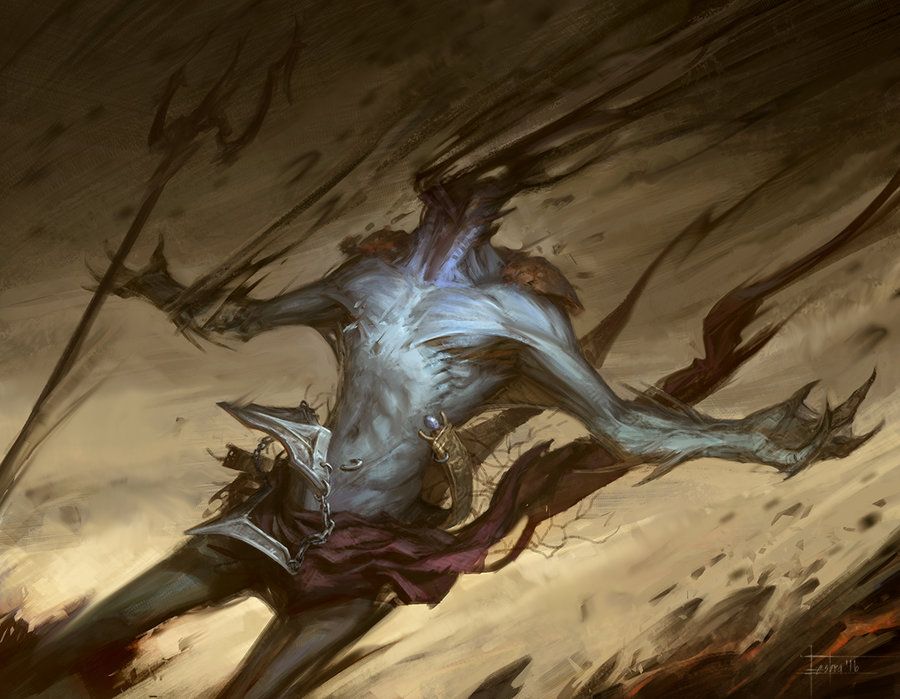
Disintegrate: This is the highest damage single target spell. Especially dangerous against enemies who regenerate, reincarnate, or otherwise return from the dead.
Dwamij’s Instant Summons: Very expensive for what it does, and you won’t find yourself using it often.
Eyebite: Being able to put a creature to sleep every round allows you to be the primary threat removal, and allow your allies to mop up with auto-critical hits as they slaughter the sleeping.
Flesh to Stone: Multiple saves to resist makes this a strict no-go.
Globe of Invulnerability: Giddyup. Any time you find yourself facing a spellcaster of equal or lesser level, turn this bad boy on and beat him to death with his own shoes. As you gain higher level spells, you can upcast this to even greater effect. Even against an enemy of equal or higher level, this means you don’t have to worry about his lesser spells, provided you can weather the stronger ones.
Guards and Wards: A fortress-building spell you’ll definitely want later on, but not one of your prepared spells.
Investiture of FlameEEPC: You don’t want to be in melee.
Investiture of IceEEPC: You don’t want to be in melee.
Investiture of StoneEEPC: You don’t want to be in melee.
Investiture of WindEEPC: The only investiture spell worth a second look. It gives you mobility and some battlefield control.
Magic Jar: Super risky and complicated as well. There is a time and a place for something like this, but those occasions are going to be few and far in between.
Mass Suggestion: Situational, but a really good way to subdue a large number of low-level creatures.
Mental PrisonXGtE: This spell can take a creature out of combat for a minute, or deal a decent amount of damage. The downside is that it’s unpredictable; you don’t know if and when the creature will either leave the effect or be forcibly jostled out of it.
Move Earth: A dungeon puzzle solving spell. Generally less useful than stone shape.
Otiluke’s Freezing Sphere: Barely better than fireball at hird level, and worse if you upcast it. The area is large, but there are other large template spells that do more damage at lower levels.
Otto’s Irresistible Dance: This pell is ridiculous, and in the same vein of Tasha’s hideous laughter very powerful. It’s hard to spend a high level slot on a single-target save-or-suck spell, but this one is strong when it connects.
Programmed Illusion: At the high-end of illusion magic, we have complicated and powerful spells that can create entire performances in the blink of an eye. If you cast this three times, you can create a continuous and flawless illusion that lasts indefinitely. With enough casters, you can get really wacky with this one.
ScatterXGtE: This can reposition the entire battlefield, moving allies and enemies around as you please.
Soul Cage: Very handy when fighting humanoids.
Summon FiendTCoE: Three really solid options of creatures to call to your aid.
Sunbeam: relatively low damage, a constitution save, and concentration make this less useful than it is flashy.
Tasha’s Otherworldly GuiseTCoE: This is a pretty neat Bladesinger trick, pulling out a bonus action buff without missing a beat. Compare to Tenser’s Transformation.
Tenser’s Transformation: Another neat trick for the Bladesinger. Between this and Tasha’s Transformation you’ve got two decent options, though there are other overall more useful spells att his level, and you can only pick one spell at this level to prepare each day.
True Seeing: You don’t need to have this all the time, but when you need it it’s second to none. This renders illusions and invisibility useless. You can see through blink and etherealness effects. The distance limitation is to be minded, however. An invisible archer near the end of his range will still get the drop on you. Also, just because you can see it, doesn’t mean you do. You’ll still need to roll perception checks to notice things you can see within the range.
Wall of Ice: Wall of force is better containment, as it can’t be broken, and Wall of Fire is better from a damage/intimidation standpoint. This gives you a little bit of both, combining physical containment with damage, but it also eats up enemy actions when they try to break it down or scale it. It loses a lot of points for being so high level, but you can still find a use for it.
7th-Level Spells
Crown of StarsXGtE: A flashy show of power that does respectable damage for what it is.
Delayed Blast Fireball: This version of fireball does massive damage, even more than a scaled-up version of the regular version. The trick comes in timing it right. It’s tough to cast in combat, as you need a whole minute to charge it and can’t break concentration.
Dream of the Blue VeilTCoE: This is a plot point. You won’t find much use for this on a normal day.
Etherealness: This spell can be used for recon or a quick escape. A quirk of this spell is that it lasts for 8 hours and doesn’t require concentration, so you can’t end it early without dispel magic.
Finger of Death: This spell is incredibly cool flavor-wise, but less powerful than most of its contemporaries. The best part about it is that it creates a zombie of a creature it kills, giving you a reward for ending a life.
Forcecage: This spell rules. The two options allow you to either completely sequester someone, or give them room to breathe. The duration allows for a short rest while keeping enemies at bay, and it works even better if you wall someone in with an active AoE giving them no way to dodge it.
Mirage Arcane: This is the best illusion you have available to you. There’s a ton of leeway in it, and your DM will have to determine exactly how real the mirage is. Can it cut? Can it burn? Either way, it’s the most area and duration you’ll have on an illusion, and the most completely immersive virtual experience.
Mordenkainen’s Magnificent Mansion: A world-weary wizard who is leaving the adventuring business need only prepare this spell daily to retire in style. It creates a luxurious sanctuary for a party to spend time in, and sees to all their needs. A strict upgrade over Leomud’s Tiny Hut.
Mordenkainen’s Sword: Bigby’s Hand is way better, and much lower level. Yes, this is spiritual weapon on steroids, but doesn’t scale half as well.
Plane Shift: While this isn’t as useful as teleport, it’s got one unique use that teleport can’t do, move you to other planes of existence. This spell isn’t to be used during combat, since you need to touch everyone targeted.
Power Word Pain: A spell that relies on you knowing your opponent’s hit point total is difficult to use ffectively. You will likely have better results with upscaled damage spells like fireball.
Prismatic Spray: This spell has a great area of effect, but its unpredicibility is its downfall. If you happen to be fighting something resistant to a damage type, you could whiff hard.
Project Image: Mirage Arcane is better.
Reverse Gravity: Unless you can fly, if you fail this save get ready to look up the rules for fall damage. Spoiler, it’s a LOT of damage. This spell effectively takes masses of enemies out of combat as they either cling to an object for dear life, float into the air for the duration, and eventually slam back down and hopefully die.
Sequester: There are cheaper ways to do this.
Simulacrum: This spell makes wizards silly. You can make copies of yourself who can go into the field for you, cast your spells, and act in your stead. They can’t recover spells, unfortunately, but hey can make plenty of trouble regardless.
Symbol: Expensive, powerful, and totally stationary. You’re looking at one of the best fortress-building spells around.
Teleport: The 5e version of this spell is incredible. You can teleport up to 8 targets instantly, and can do so at a short range. Make sure to collect souvenirs from safe locations as you travel so you have an error-free path back to safety in case you need to escape in a hurry.
WhirlwindEEPC: Weak damage, and not as useful as reverse gravity or levitate for lifting things.
8th-Level Spells
Abi-Dalzim’s Horrid Wilting: In terms of damage and effect, sunburst is strictly better.
Antimagic Field: Situational, but his is so powerful and utterly ruins casters so it gets a very high rating.
Antipathy/Sympathy: Against a large group of one type of creatures, this is very strong. If you’re fighting mixed enemies, mounted enemies, etc. this diminishes quickly.
Clone: If you can afford to cast this, you are functionally immortal. Coupled with Simulacrum, you can cause some really wacky things to happen.
Control Weather: This spell is awesomely powerful, but barely useful. It’s a dramatic display of the Wizard’s mastery over the elements, but has almost no combat application given the duration of the cast.
Demiplane: This is a good way to protect yourself during a short rest and simultaneously hide something away in a way that almost no one will find it. To do only one of these two things, there are much lower level spells that can emulate the effects.
Dominate Monster: The best save-or-suck spell available to you. The target gets to repeat the save every round in combat, so finding creative non-violent uses of this spell will really show off its utility and power.
Feeblemind: You can absolutely ruin any wisdom and charisma based characters with this spell.
Illusory DragonXGtE: Ever wish you could summon a dragon, but afraid it would turn on you, deceive you, or eat you? Look no further.
Incendiary Cloud: This is cloudkill on steroids. It has damage that compares with fireball cast at the same level but persists for a full minute. If cast in an enclosed area, you better believe it will deal enough damage to kill even the toughest foes.
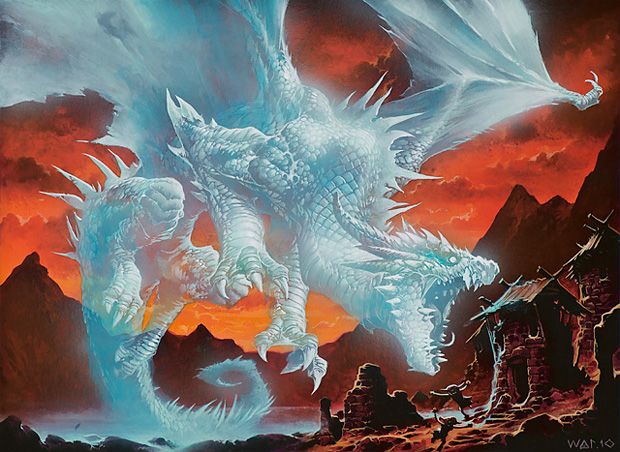
Maddening DarknessXGtE: The large area and high damage make this a solid spell. Cast in a confined space, this can make short work of weaker enemies, while preventing them from effectively retaliating.
Maze: Any creature with less than 10 intelligence can’t hope to escape from this ethereal prison.
Mighty Fortress: This spell is incredible, but you won’t want to walk around with it prepared. You have tiny hut for resting. This could be more of a plot point.
Mind Blank: Very situational.
Power Word Stun: taking a guess about the current hit points of an enemy is risky for such a high level spell. However, if you know your foe is flagging and you’re trying to take him alive, this is one of if not the best way of doing so.
Sunburst: It’s like fireball, but bigger and brighter. You can slow a whole army for at least a round with this, as the confusion they will feel after being blasted and temporarily blinded can cause them to stutter.
Telepathy: Rary’s telepathic bond is lower-level, links more creatures, but has limited range compared to this. Sending can be used to counter the range requirements if necessary, making this almost a total waste of a very high-level spell slot.
9th-Level Spells
Astral Projection: This is the best way to explore the astral plane. Wander around and explore, and if things get dicey, you can use an action to move back to your body.
Blade of DisasterTCoE: This is your best single-target 9th-level spell. If you’re going up against multiple opponents, use meteor swarm.
Foresight: This is the best buff in the game, hands down. It’s like drinking the Felix Felicius potion. You’re going to have the best day of your life anytime this is cast on you.
Gate: By the time you have this spell, you’re likely going to be able to use it for plot-related reasons. Dimensional travel makes you a powerful economic player, able to move goods instantly across space. You can drop a battalion of troops into a fortified location in an eye blink. With this, you and your allies have the ability to be anywhere at any time.
Imprisonment: This spell would be incredible if there weren’t lower-level ways of removing a single creature from combat. The effect is unique, but hardly irreplaceable.
Invulnerability: This is expensive to cast. You’re likely to deal more damage with a 9th– level spell like meteor swarm or psychic scream than you will prevent with this.
Mass PolymorphXGtE: You can turn up to 10 creatures into different creatures. This spell, while not as powerful as true polymorph, which can turn you into a CR 17 Dragon, is actually more versatile. Need to fly, swim, climb, sneak, or otherwise blend in? Your whole group benefits from the effect. Facing an enemy that deals mainly fire damage? Bam, you’re all a creature that’s immune to fire. You can swing a huge advantage by playing with types and abilities of your otherwise vulnerable team.
Meteor Swarm: If you’re looking for a damage spell, this is the best one around. An absolutely enormous amount of damage and a range to die for. Smite a city from the top of a nearby mountain, why don’t you?
Power Word Kill: This spell absolutely rocks. It outright kills the target, with no chance for them to resist or save against he effect. The main hang up with this spell is that you’ll need to know if it will work, which isn’t something easy to determine. Wait too long, and you might as well have just used weapons or a lower level spell. Jump too soon and it’s wasted.
Prismatic Wall: This is the best area-control spell in the game. Not only does it hem in enemies, it punishes them relentlessly for the ten-minute duration. Drop a duration AoE inside it and watch your opponents boil.
Psychic ScreamXGtE: The limit of 10 creatures makes this less dramatic than a 9th level spell can be, but if that’s all you need, then this is one of the most powerful ways to lock down a group of enemies, and do so for a very long time.
Shapechange: Turn into a dragon and wreak havoc. If you’re fighting alone, use this. If you’ve got friends, mass polymorph.
Time Stop: 1d4+1 turns of free action, provided you don’t mess with anyone too much and end it prematurely. You can set up a bunch of buffs, run an appreciable distance away, and continue casting.
True Polymorph: Turning an object into a monster or vice-versa is the big selling point of this over the other two shape-changing spells at this level.
Weird: Phantasmal killer does basically the same thing against one foe. If there’s a group? Use meteor swarm.
Wish: It’s hard to grade the 9th-level spells in terms of power when compared to each other. The only accurate way to do this is to put Wish as the overall best, and rate the rest below it. Overall, wish is the best spell in the game. It’s any spell you want it to be, which makes it powerful but also hard to use.
Multiclassing
Artificer: This gives you the armor and weapon proficiencies you want, and doesn’t set you back in spellcasting.
Barbarian: No synergies.
Bard: No synergies.
Cleric: You can gain heavy armor proficiency, and enough first level spells to be a great support character.
Druid: No synergies.
Fighter: Two levels for Action Surge is very strong, but comes at the cost of a whole level of spells you’ll miss out on in the long run.
Monk: You could make a very interesting build by dipping into Monk, but you’ll suffer on overall power in favor of utility and small defensive upgrades.
Paladin: No synergies.
Ranger: No synergies.
Rogue: If you really want to be a sneaky caster, just be an Arcane Trickster.
Sorcerer: No synergies.
Warlock: No synergies.
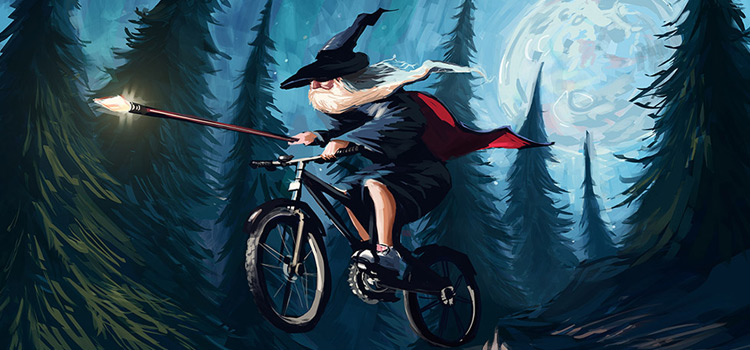
References
DMG Dungeon Master’s Guide
EGtW Explorer’s Guide to Wildemount
ERLW Eberron: Rising from the Last War
EEPC Elemental Evil Player’s Companion
GGtR Guildmasters’ Guide to Ravnica
MM Monster Manual
MToF Mordenkainen’s Tome of Foes
PHB Players Handbook
SCAG Sword Coast Adventurer’s Guide
TCoE Tasha’s Cauldron of Everything
TP Tortle Package
VGtM Volo’s Guide to Monsters
XGtE Xanathar’s Guide to Everything
Is the D&D wizard class not your thing?
Check out our comprehensive guide to all the D&D 5E classes and how to choose one that best suits the character you’d like to play.





